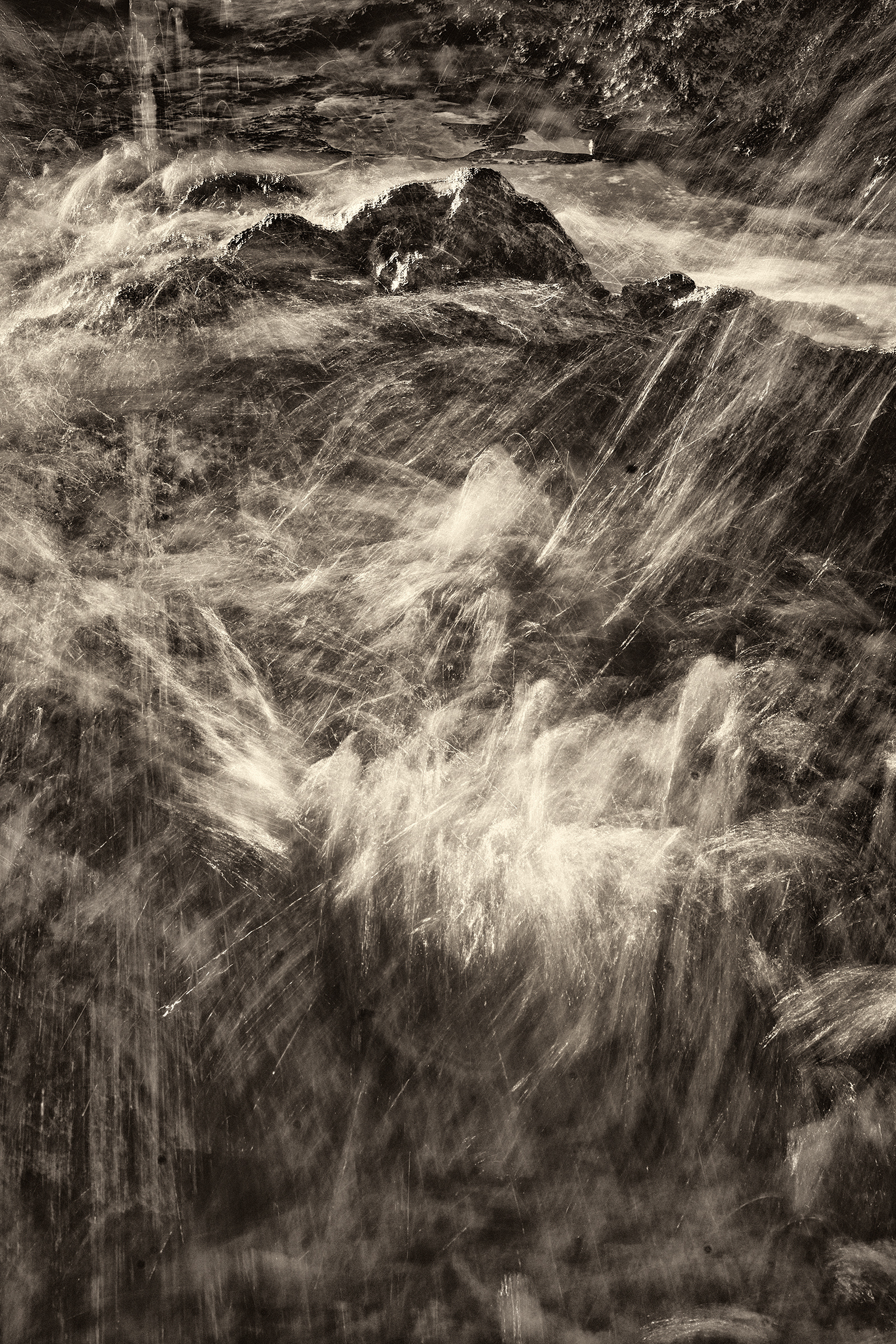
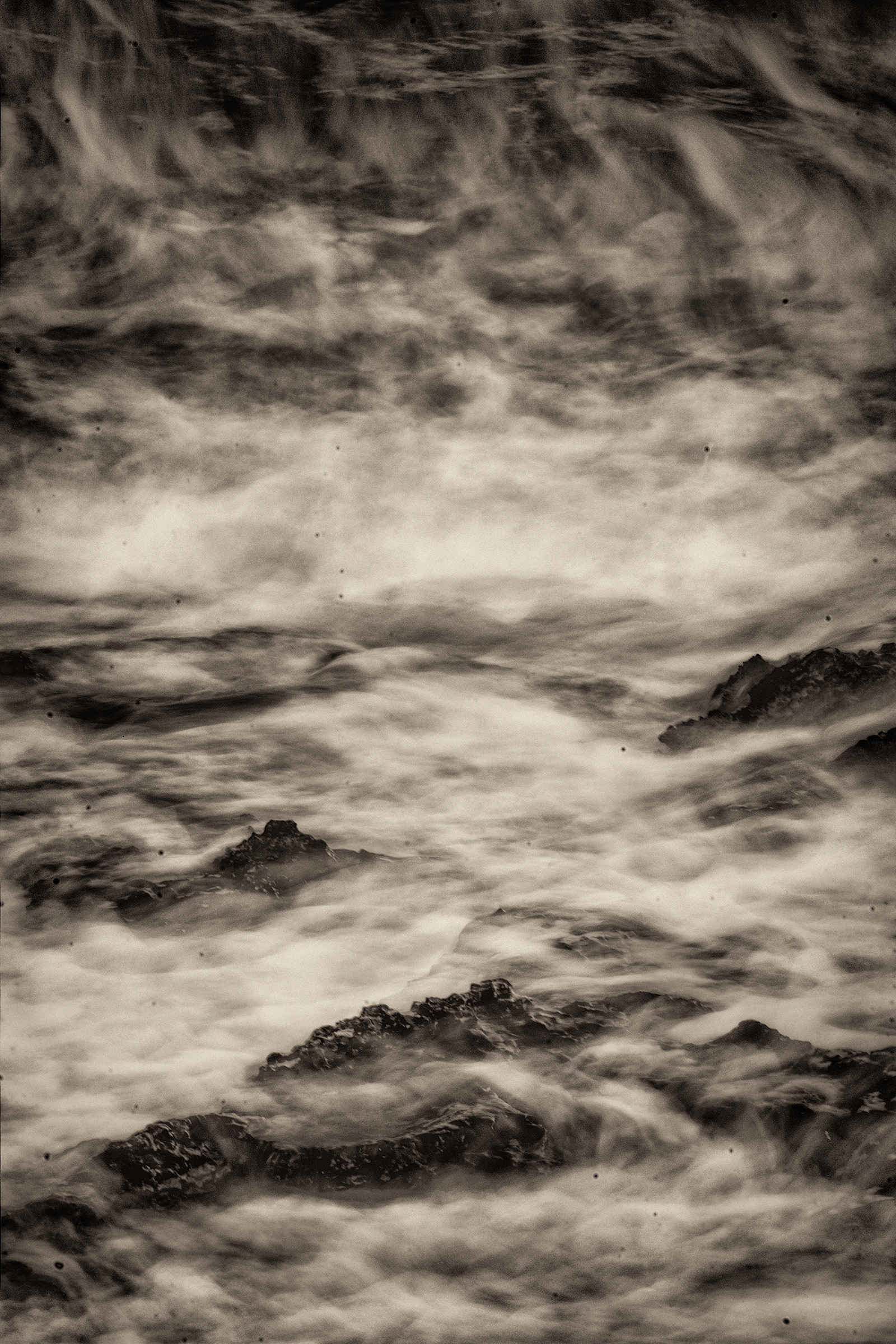
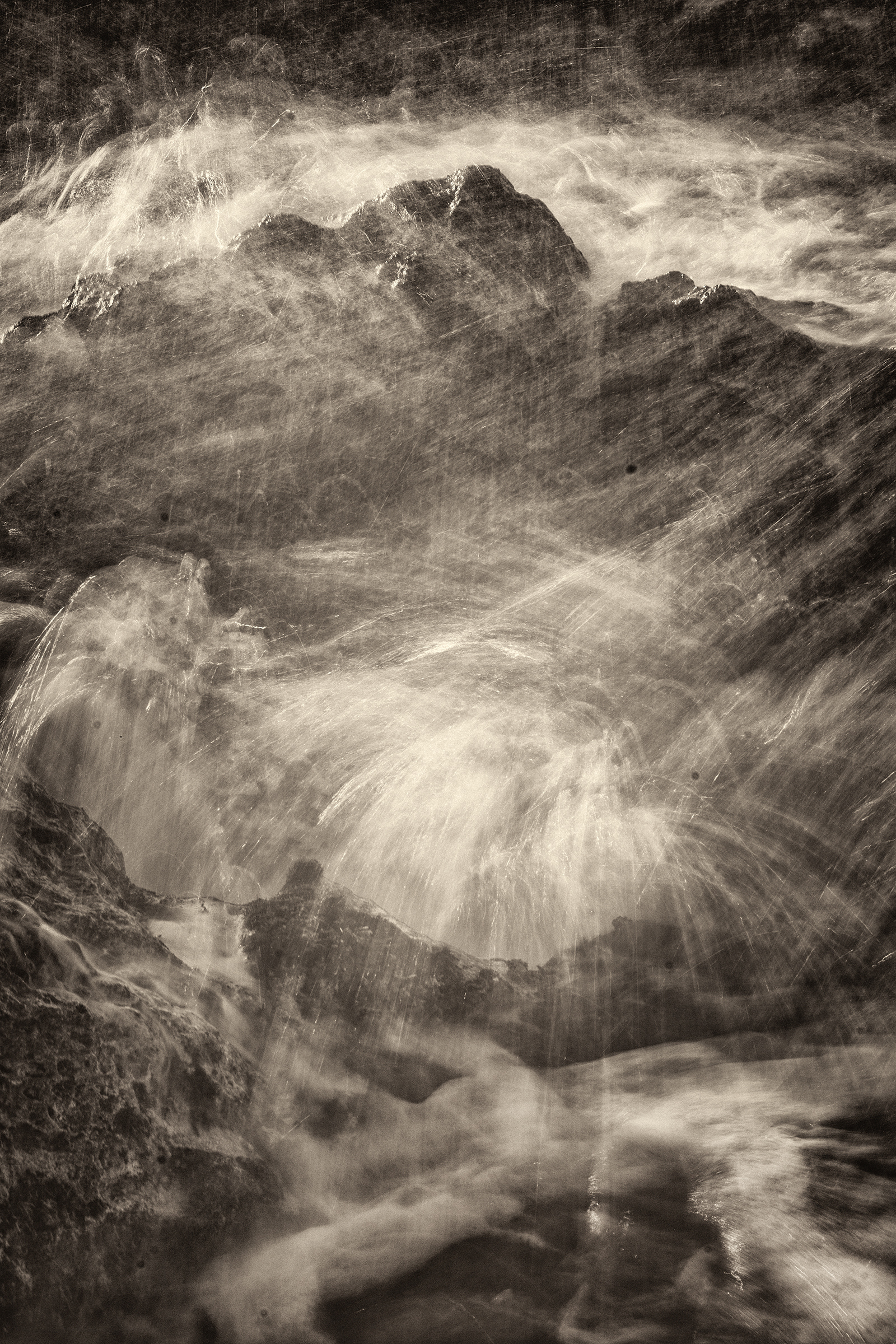
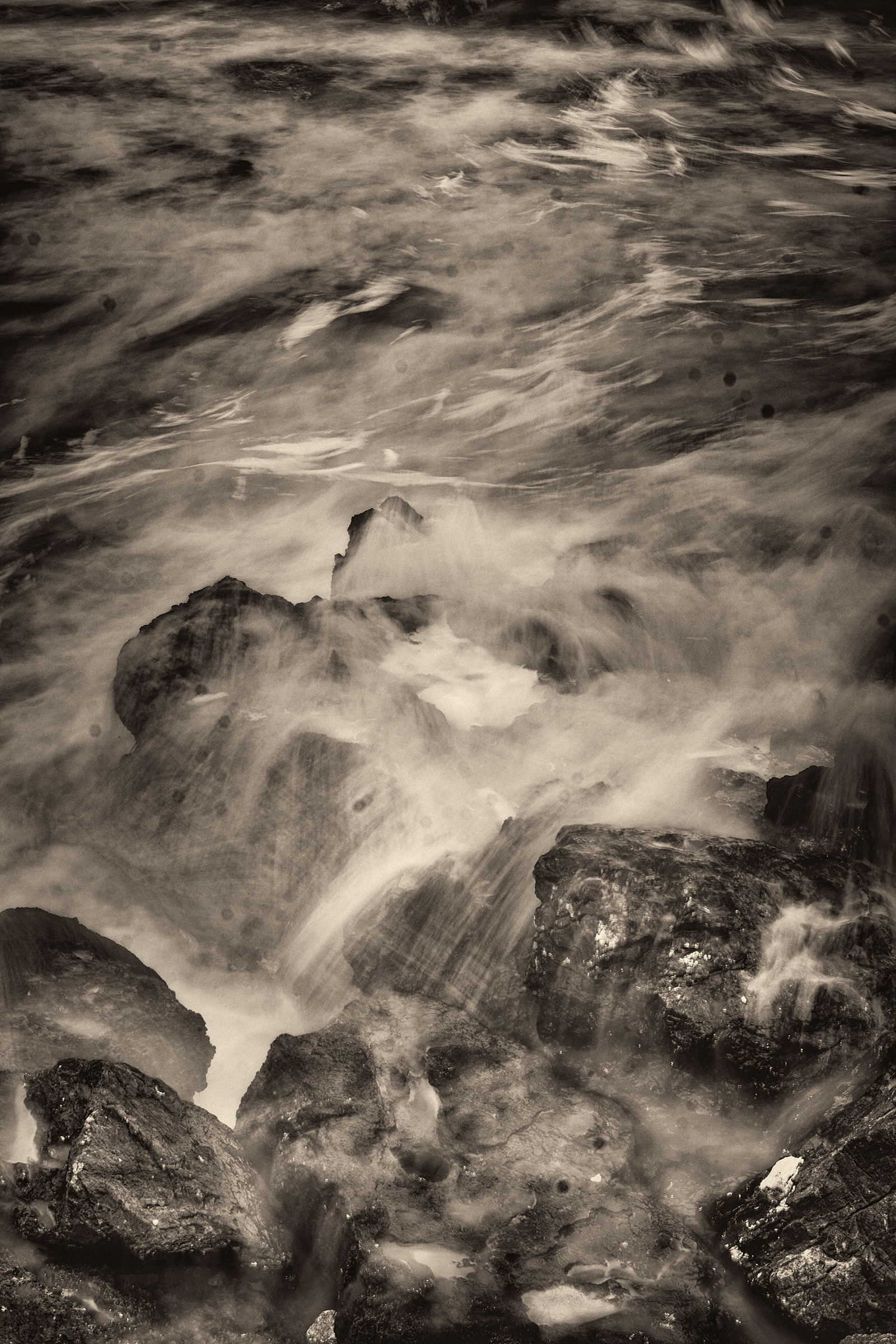
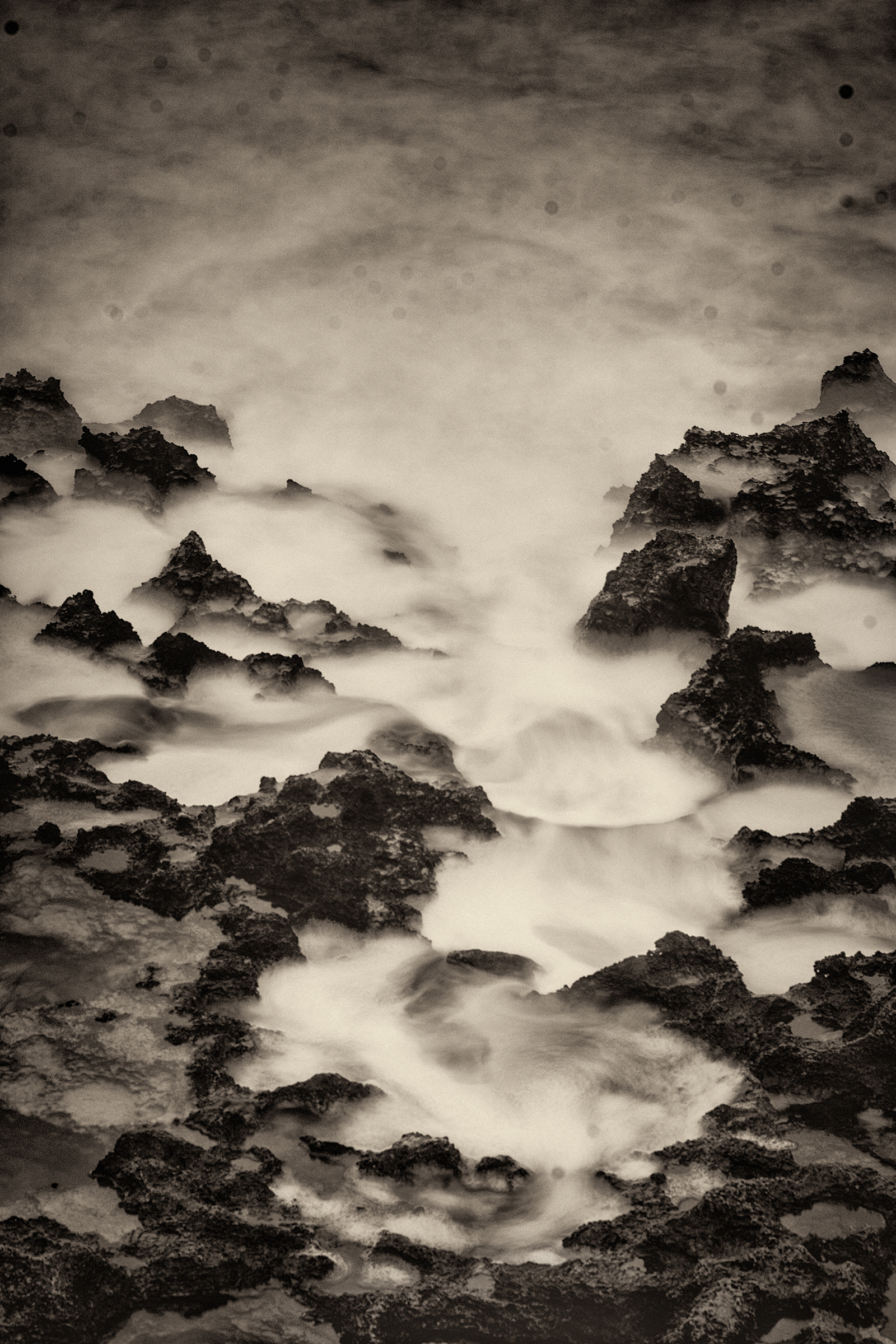
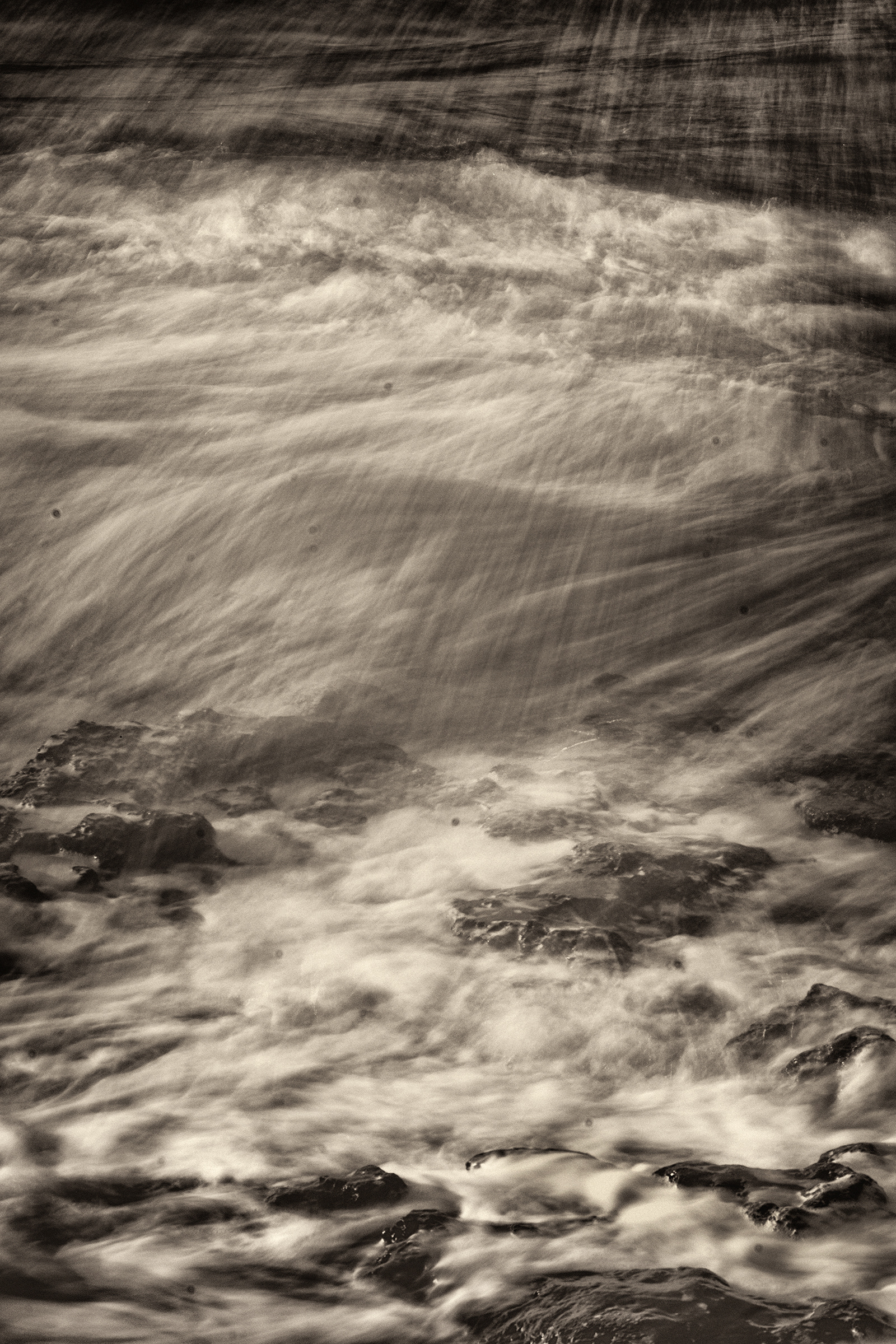
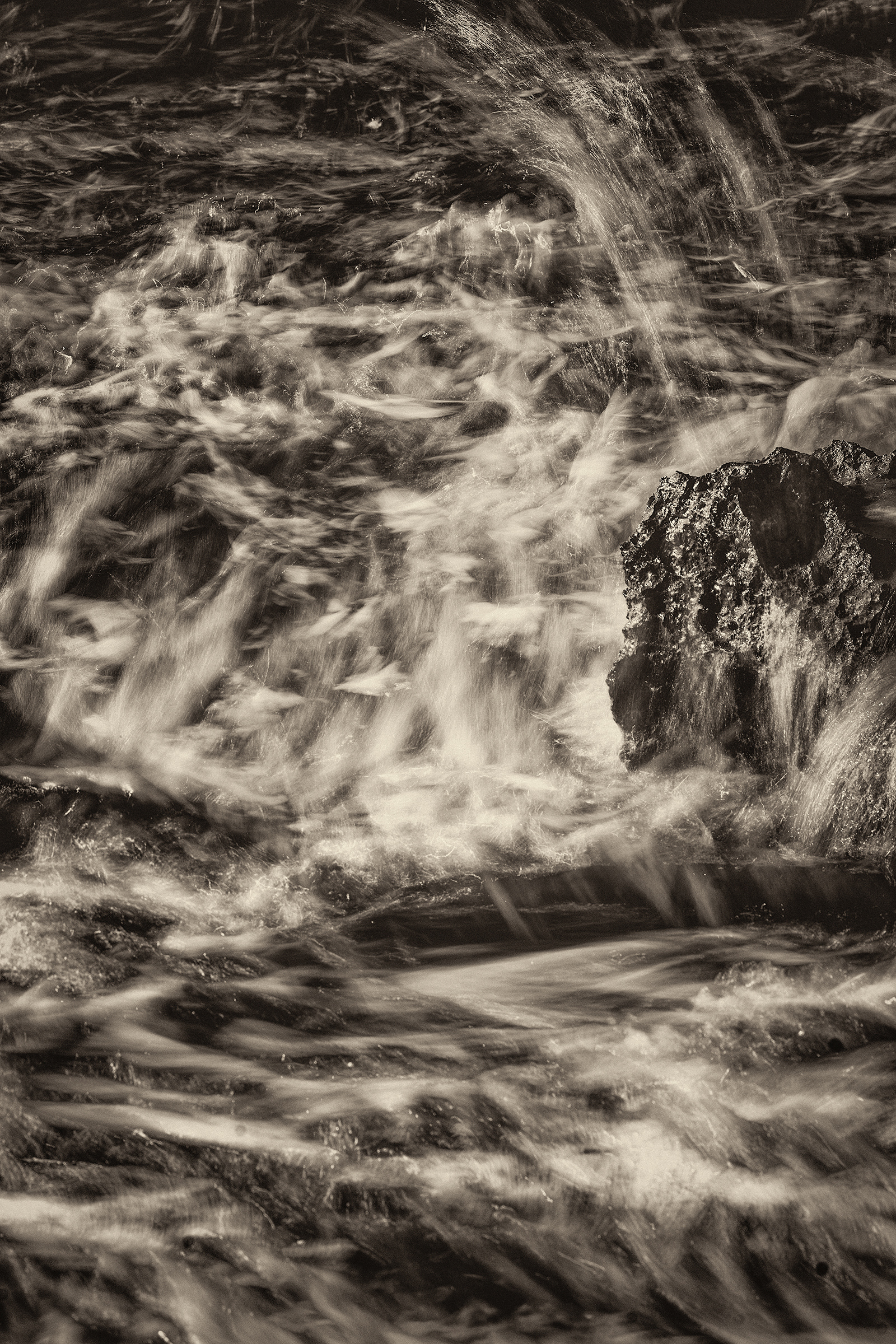
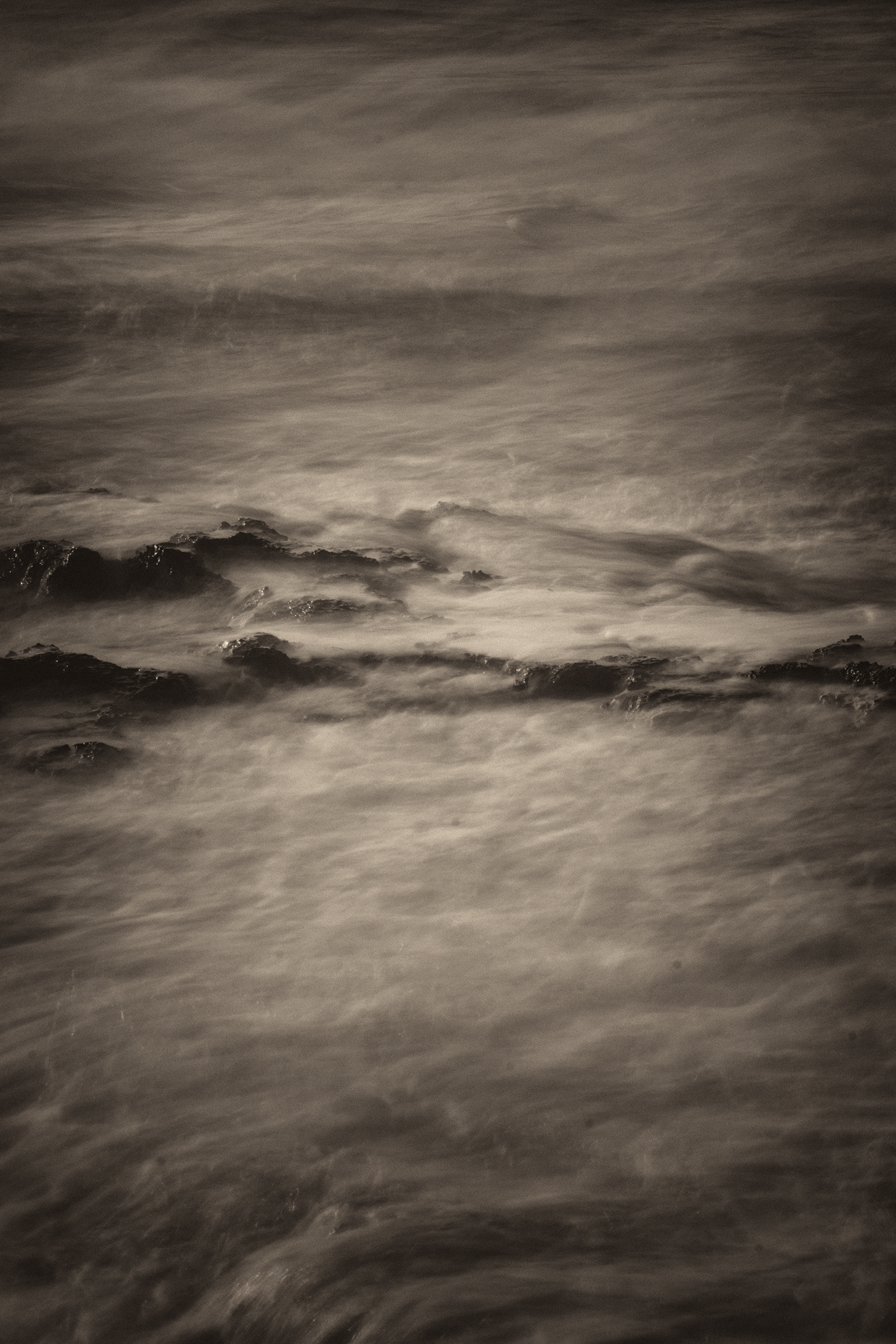
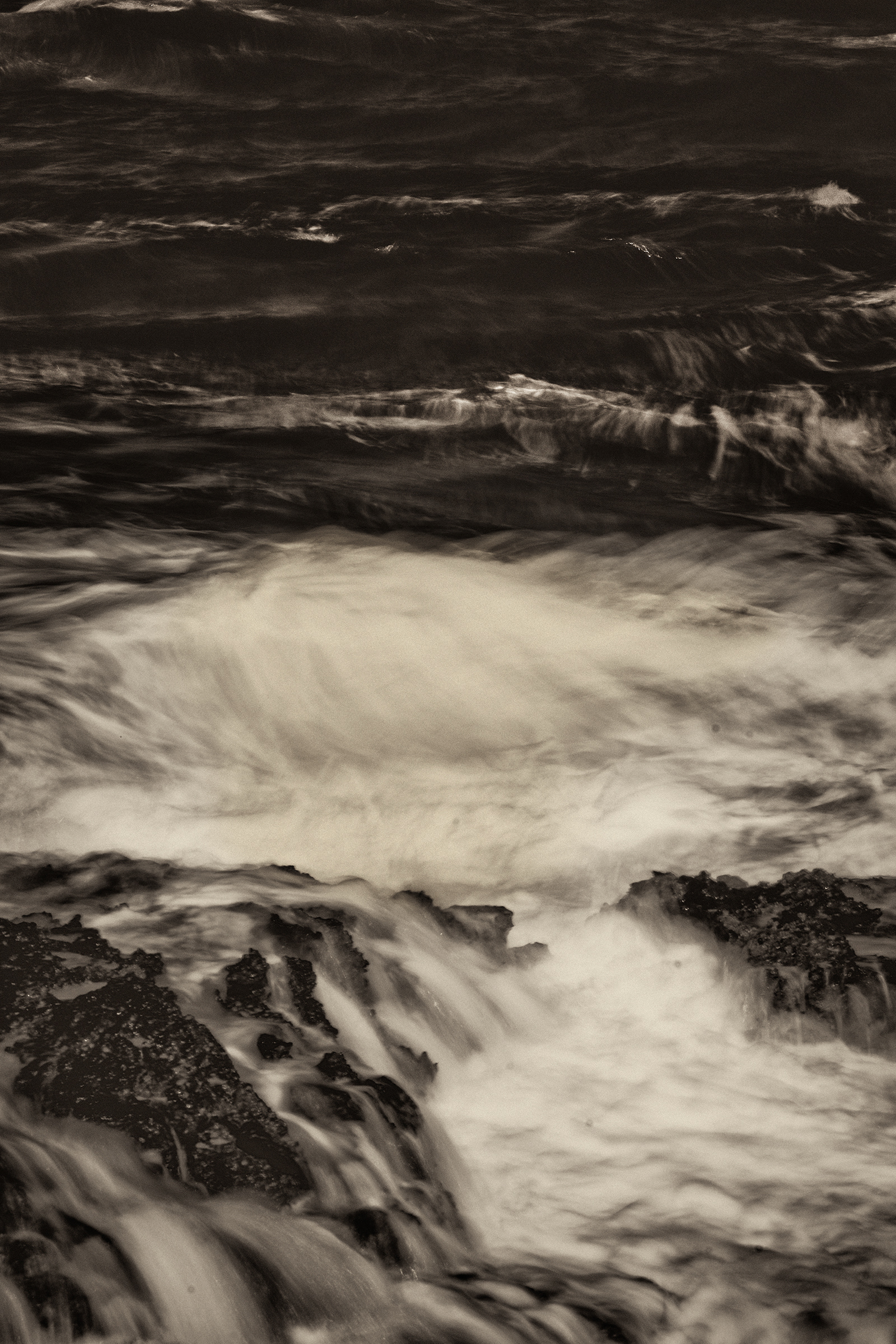
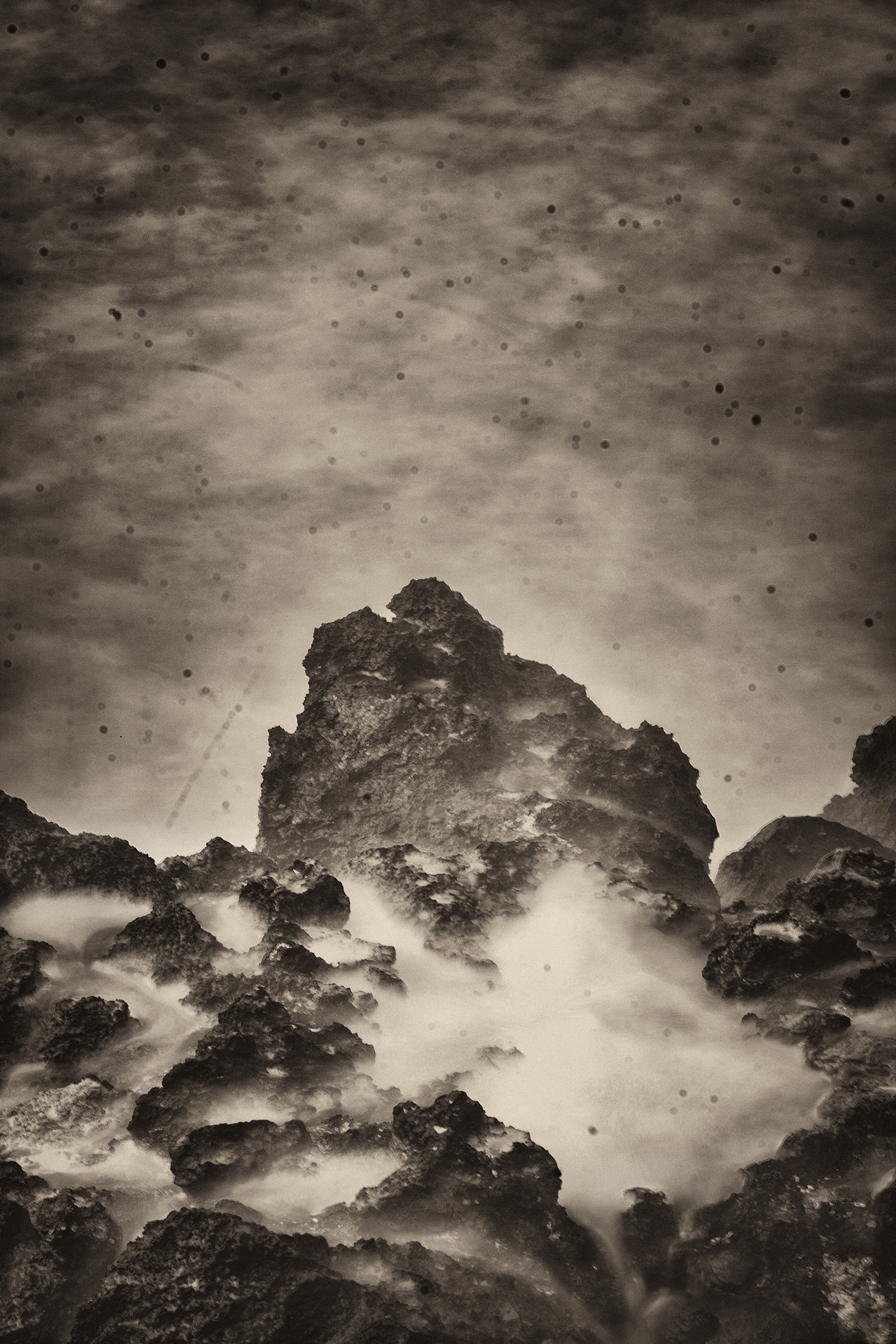
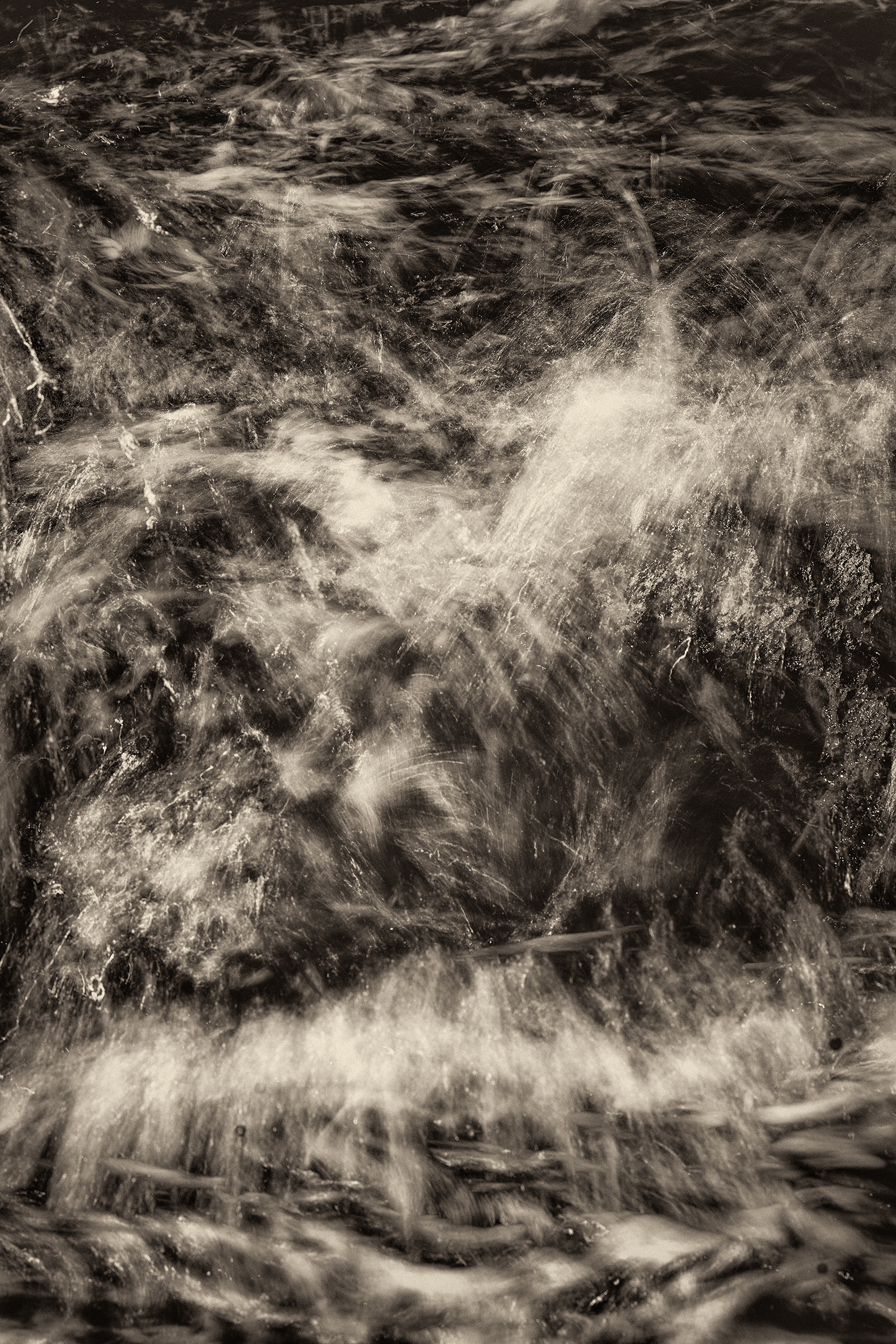
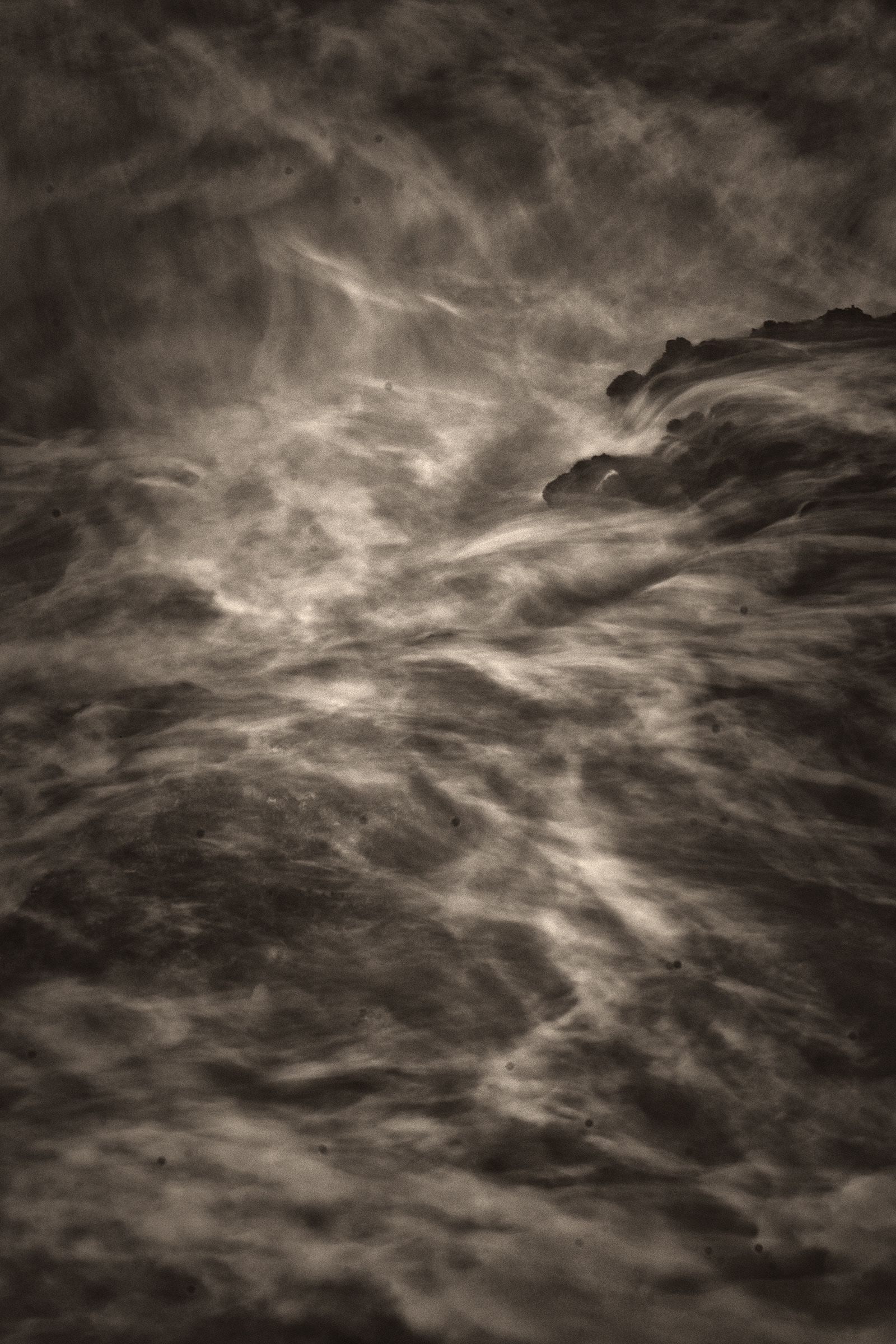
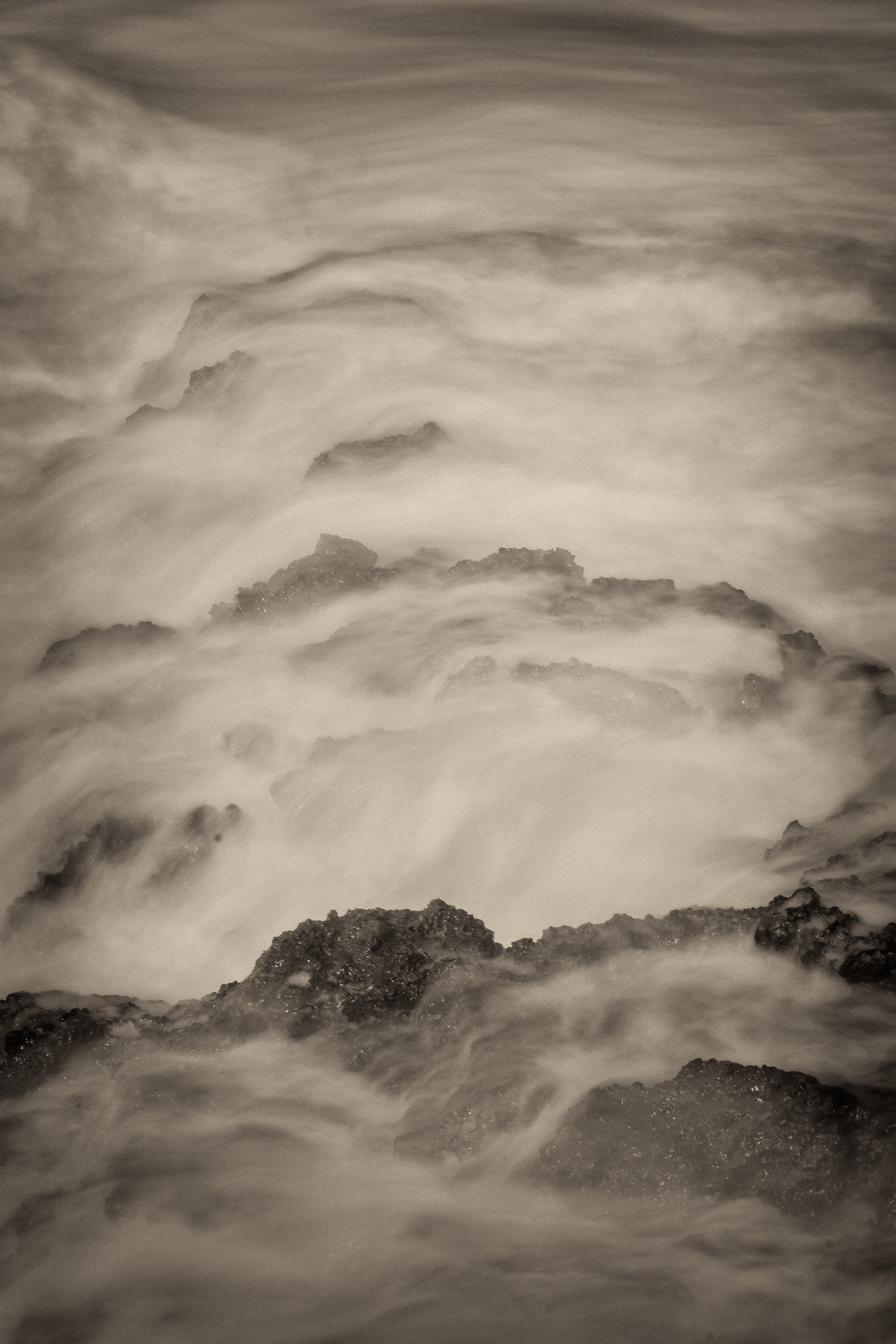
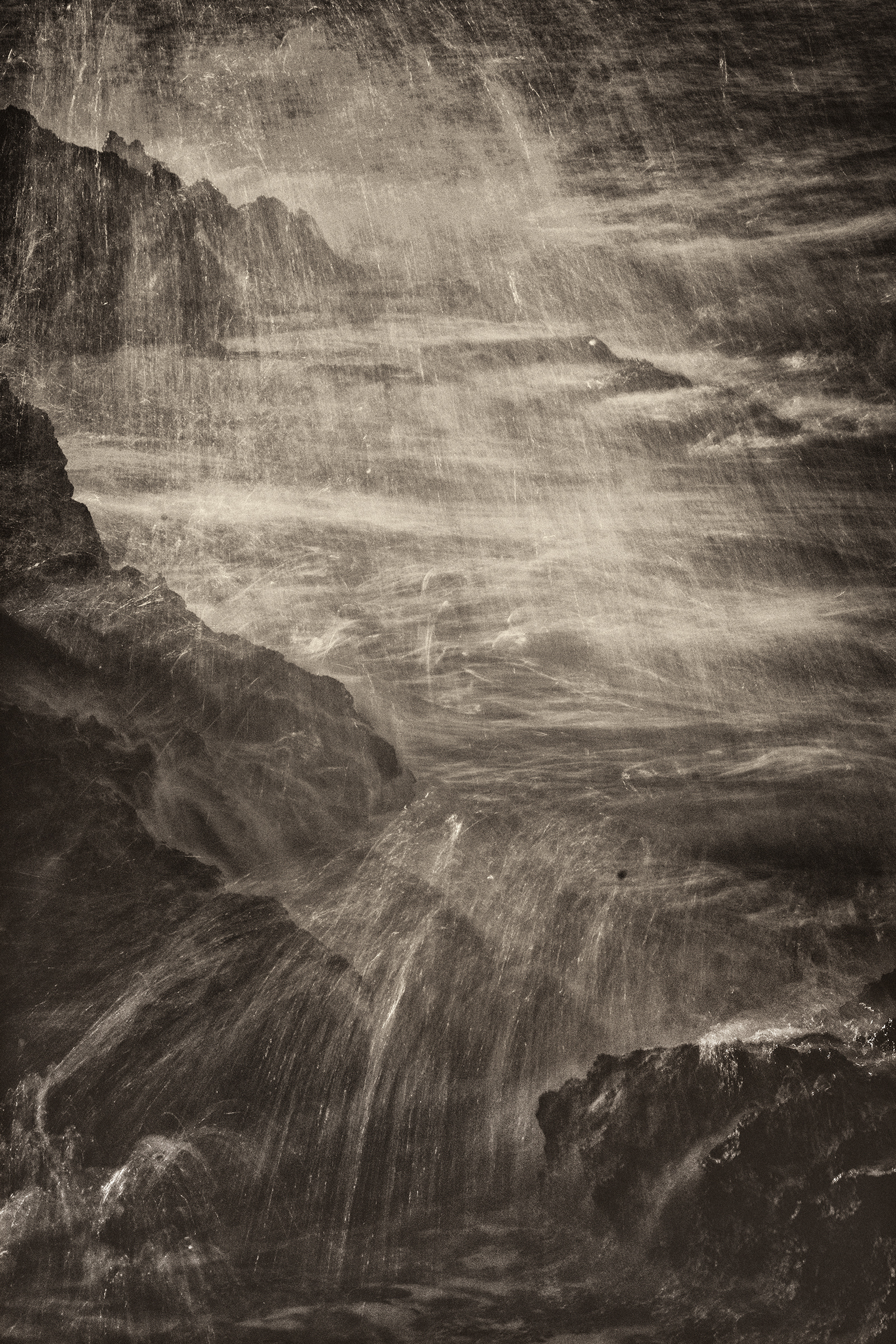
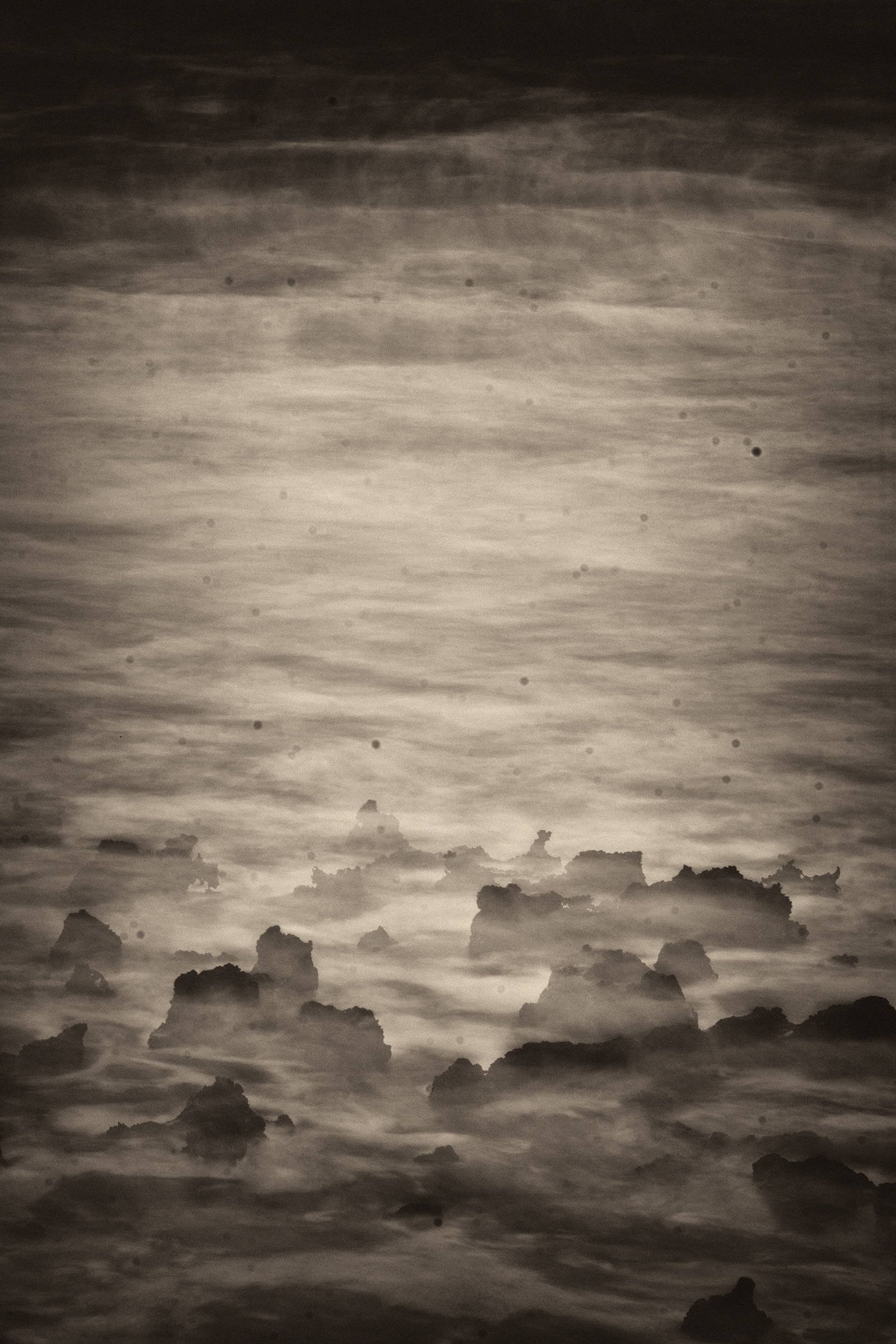
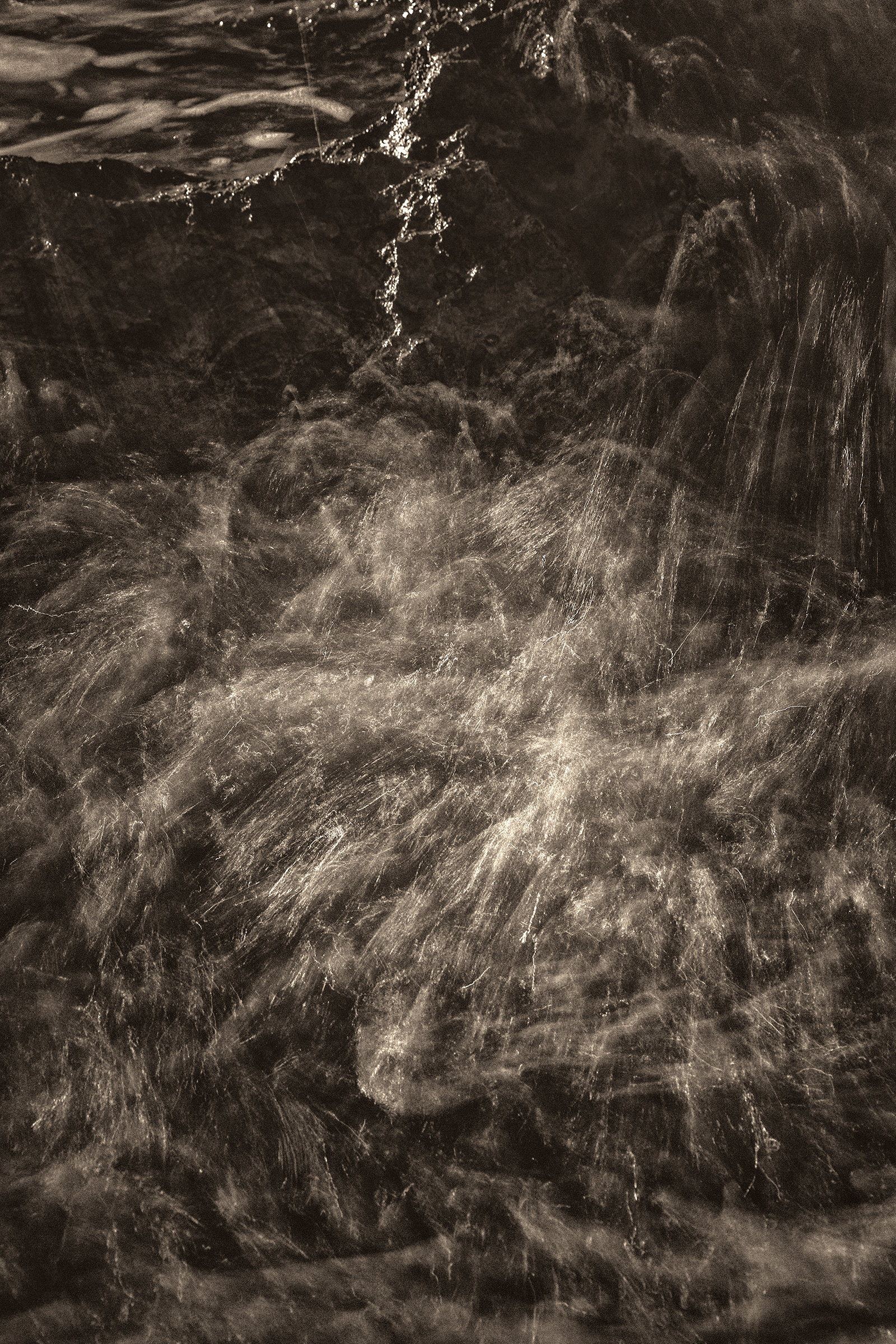
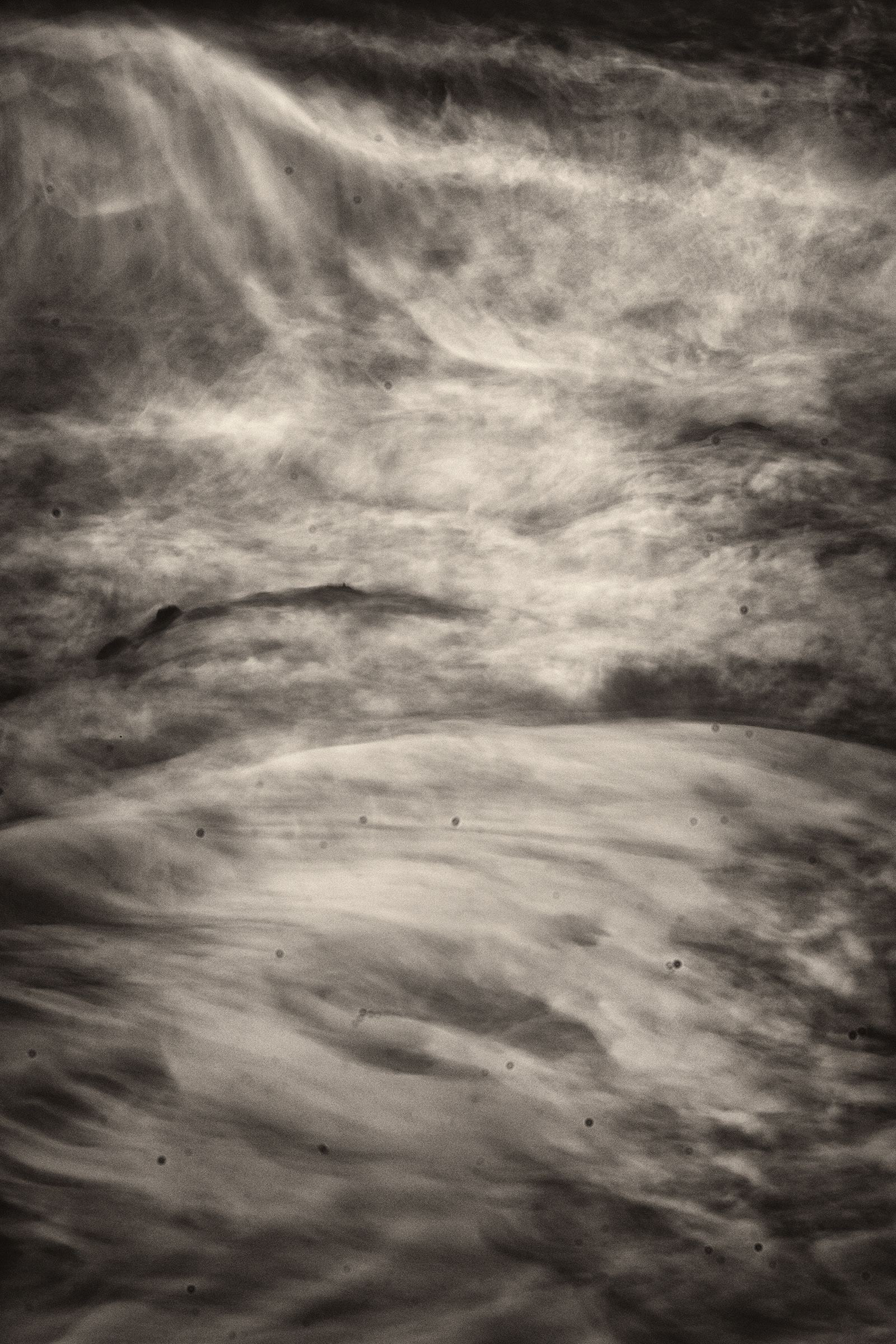
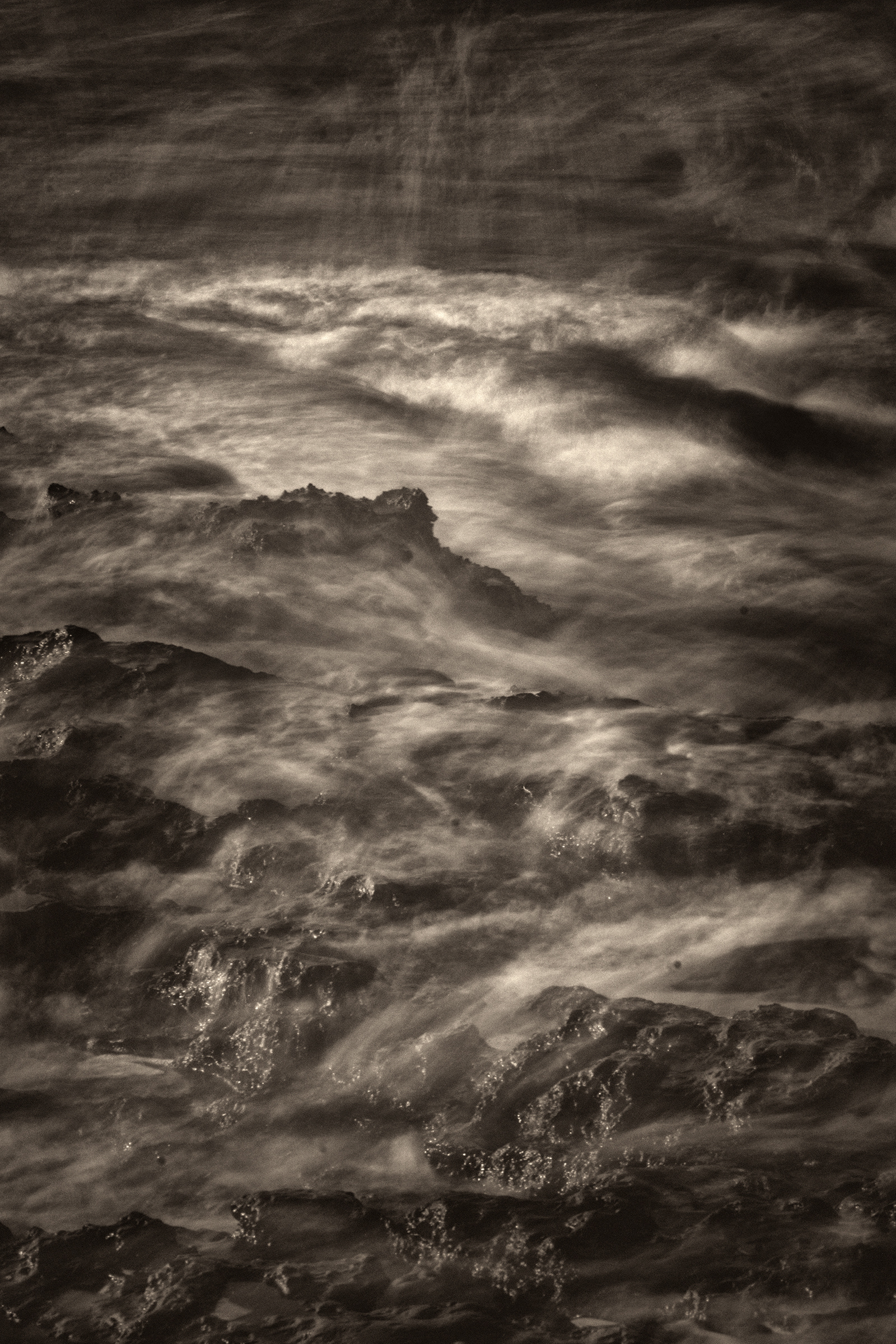
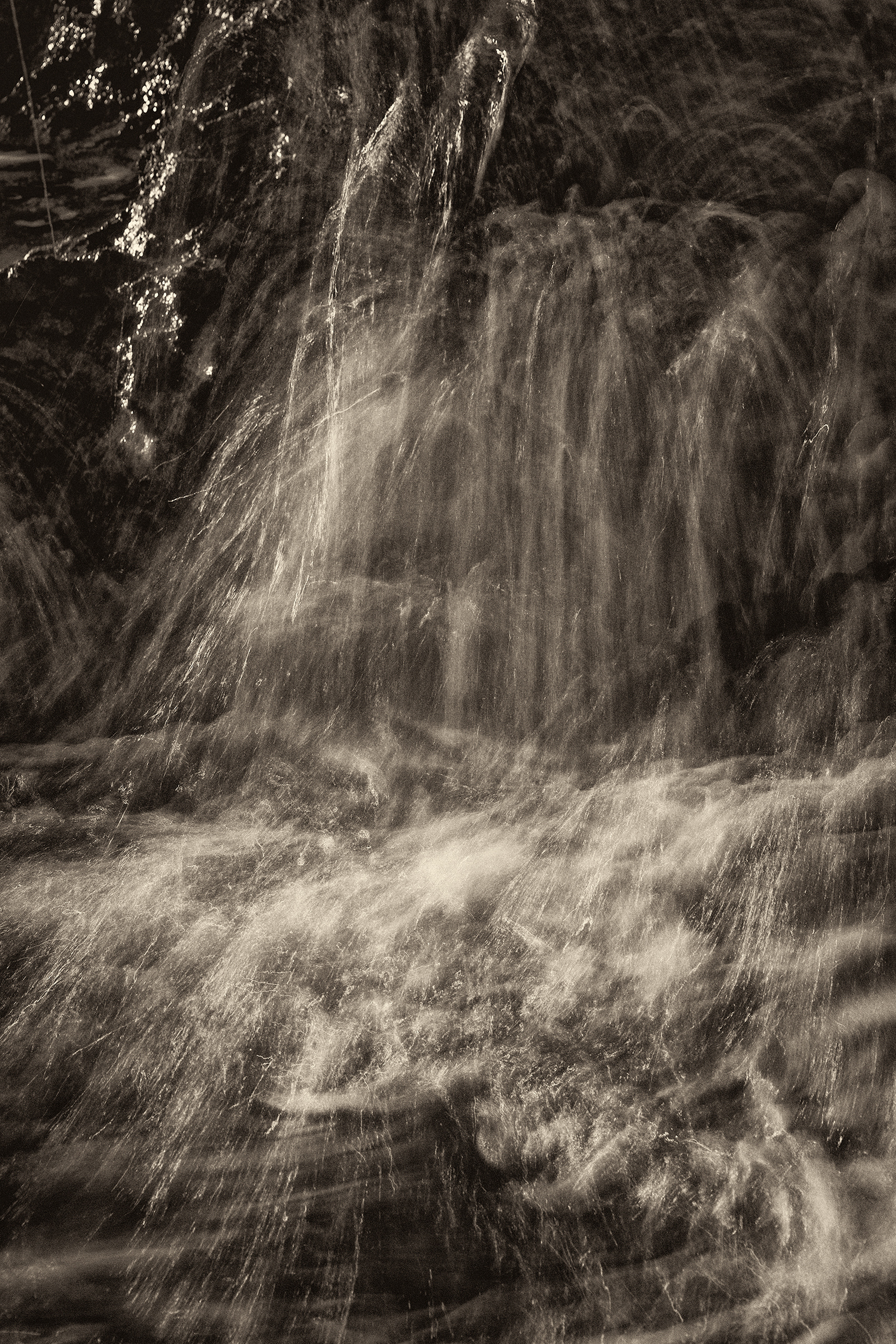
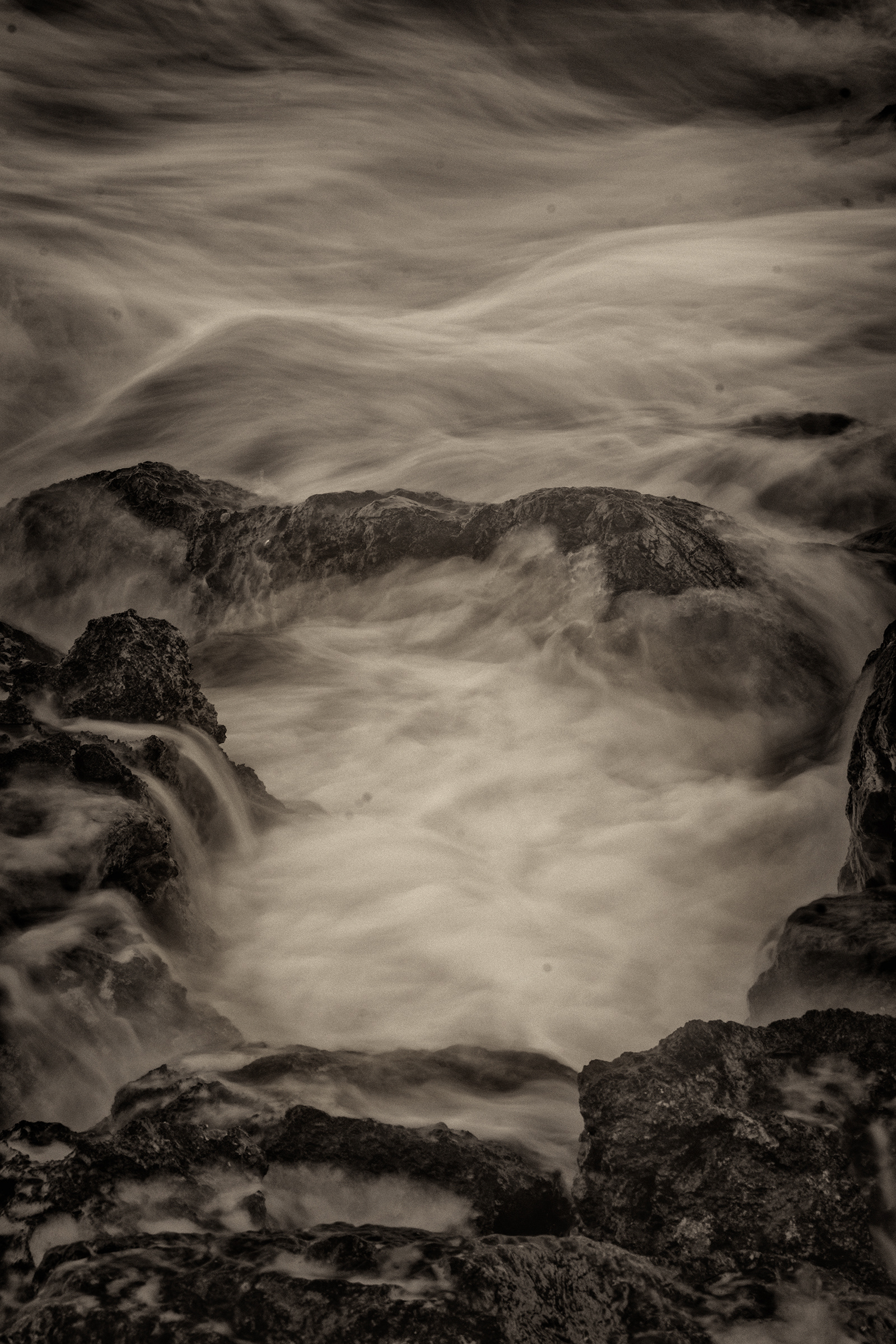
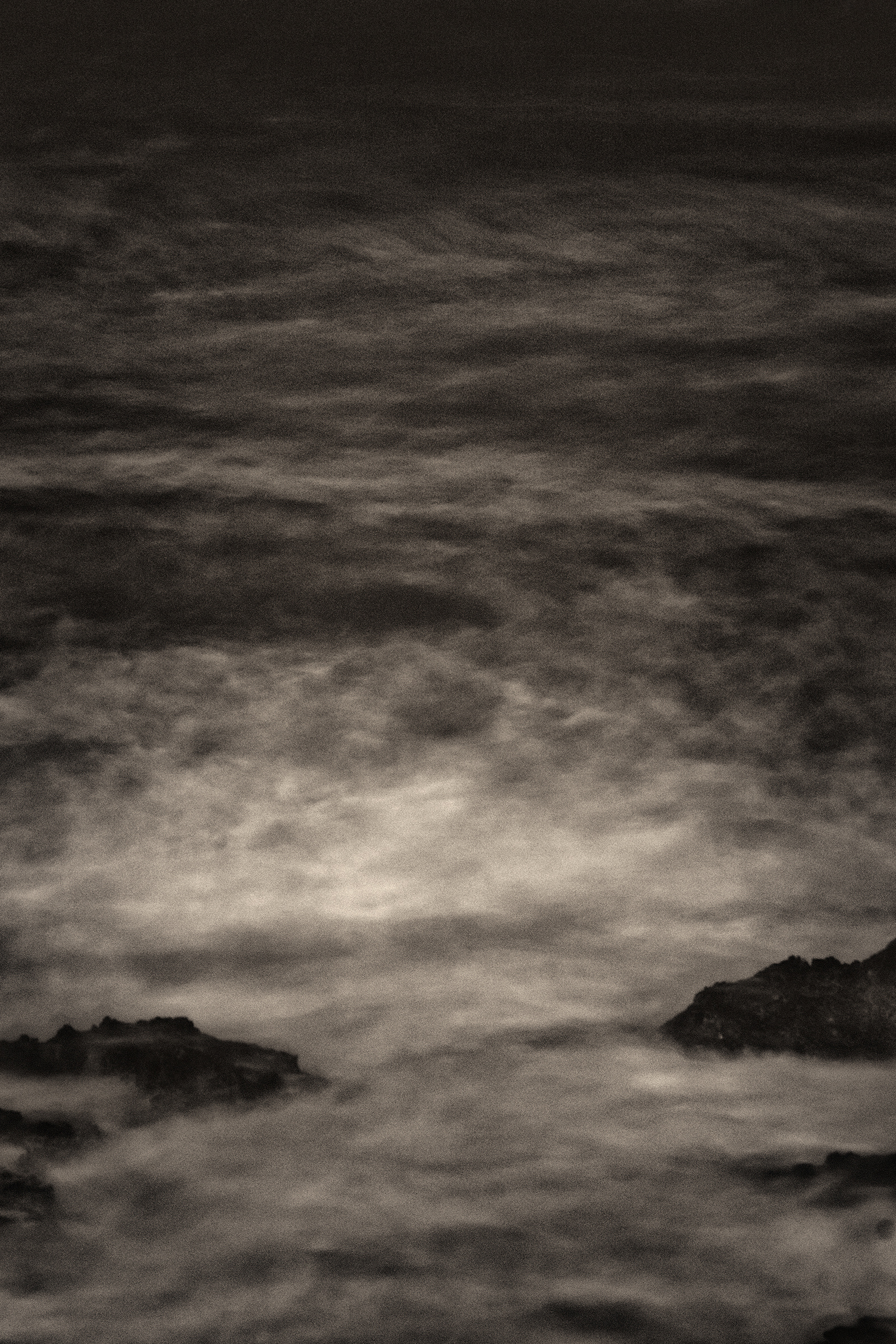
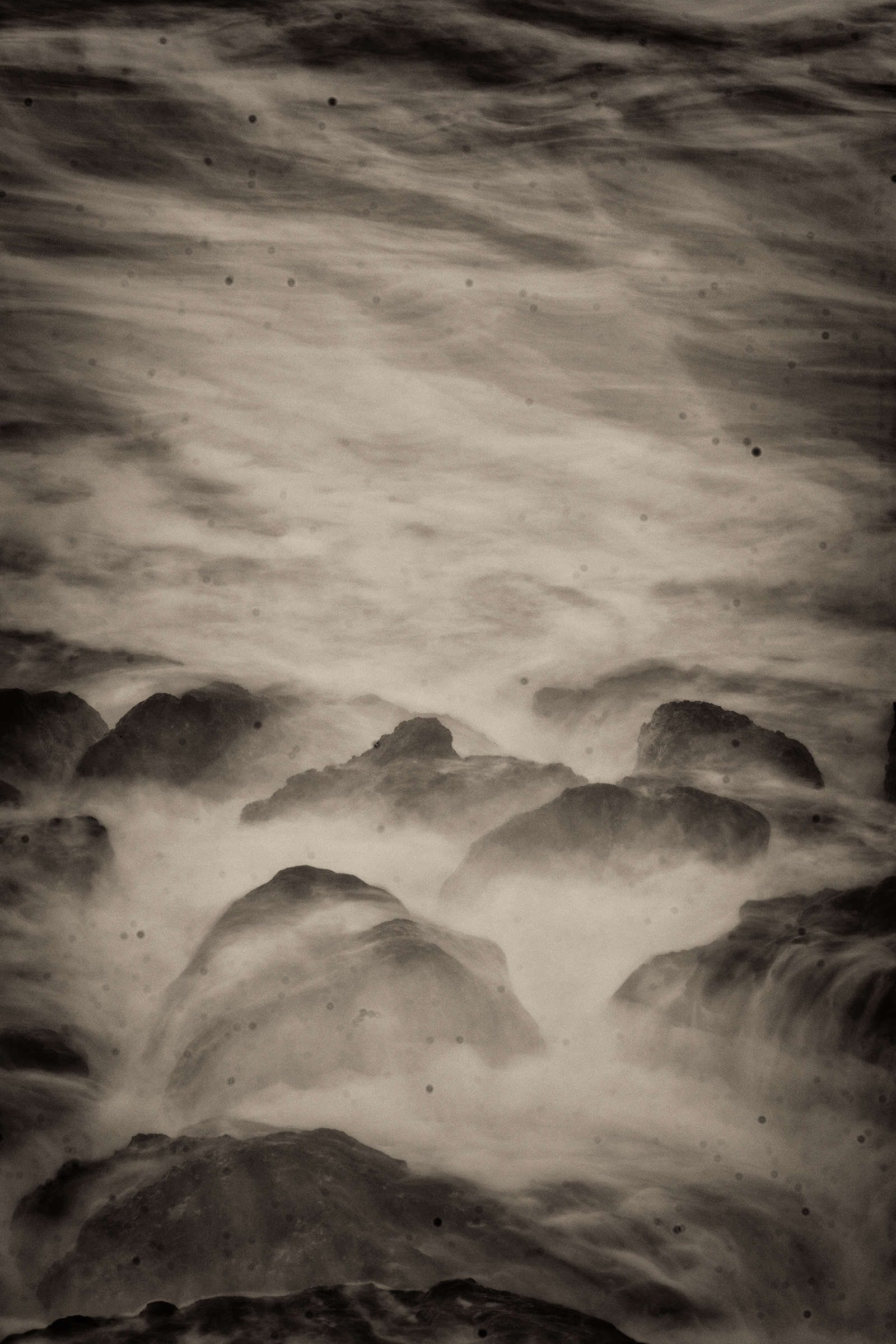
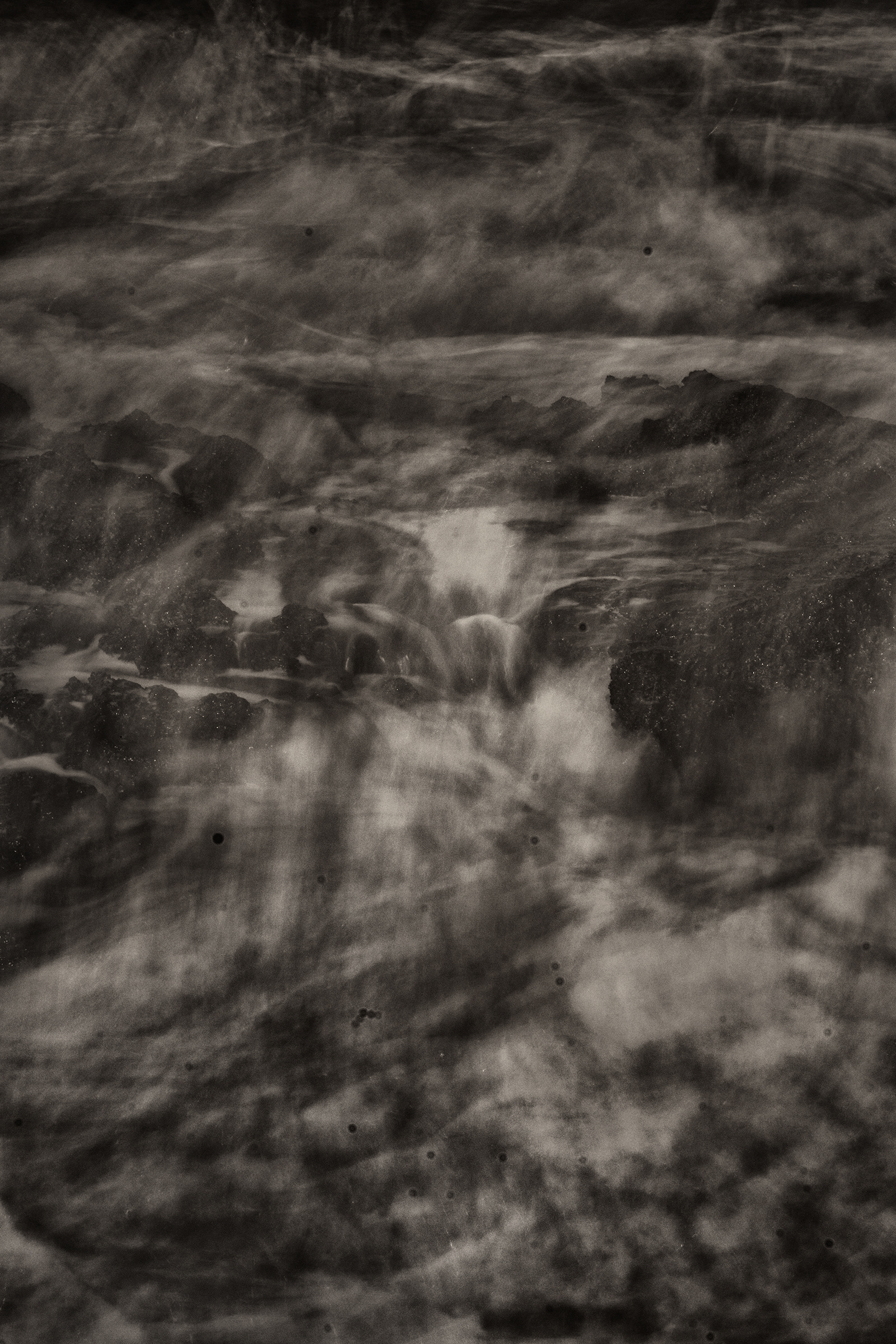
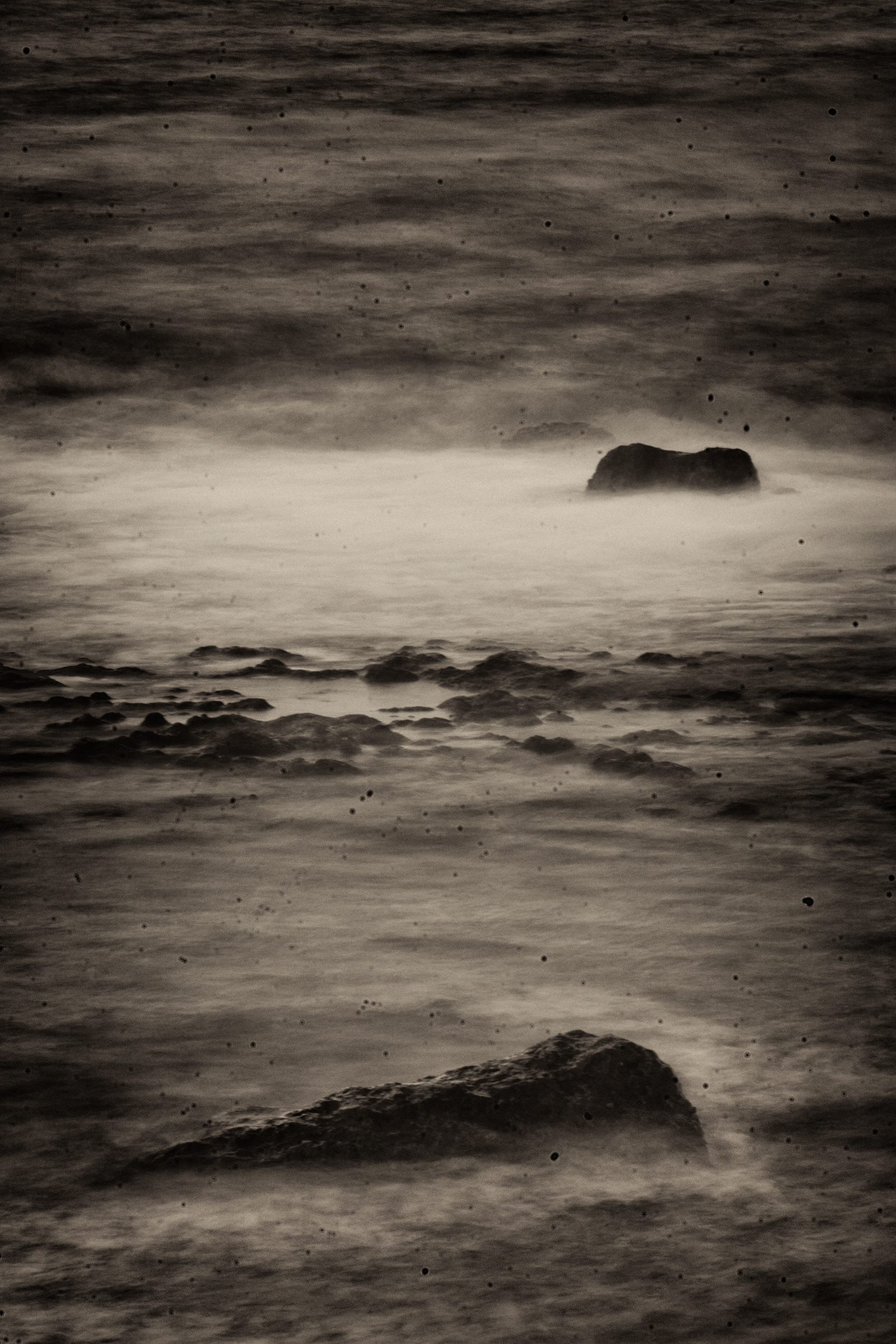
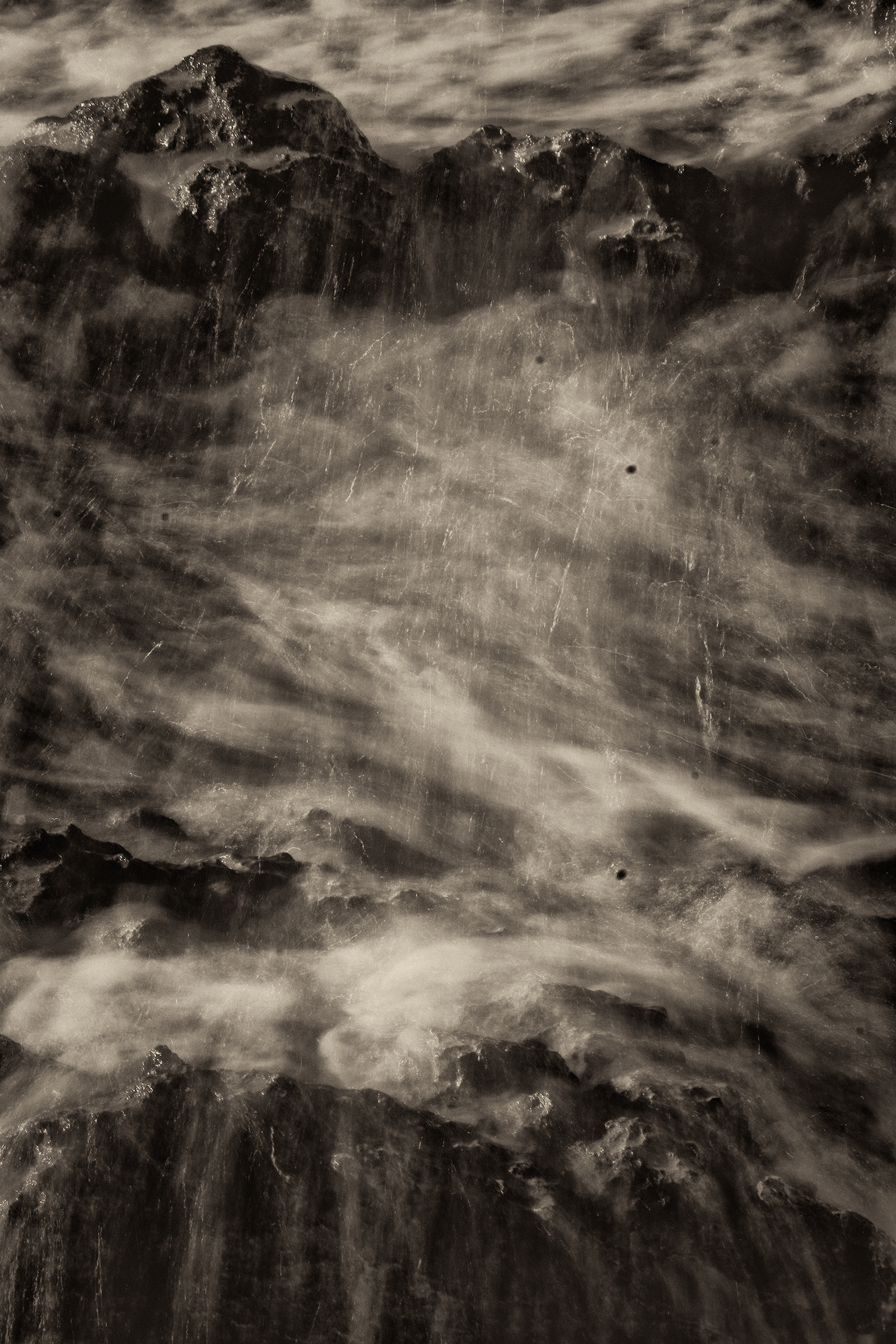
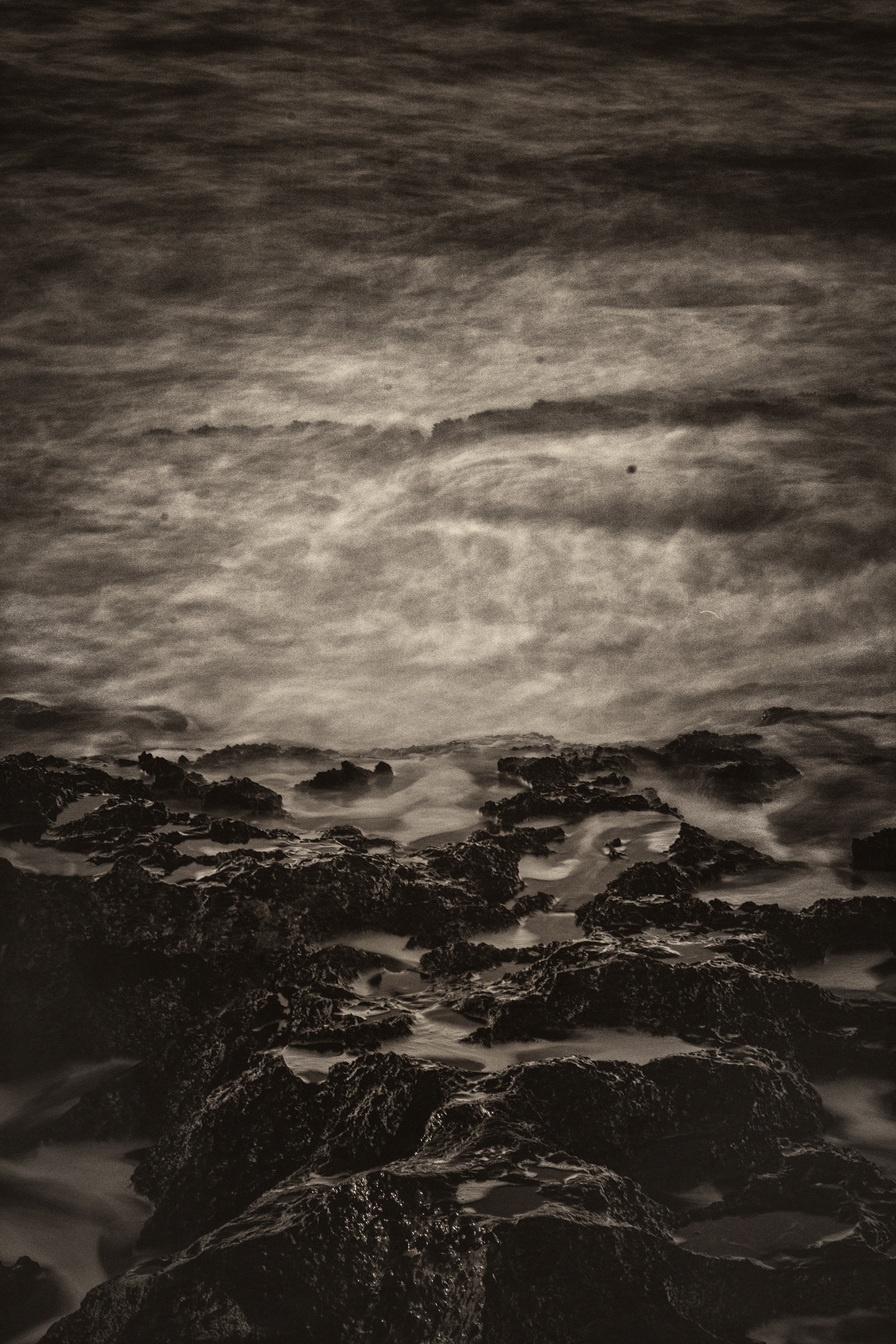
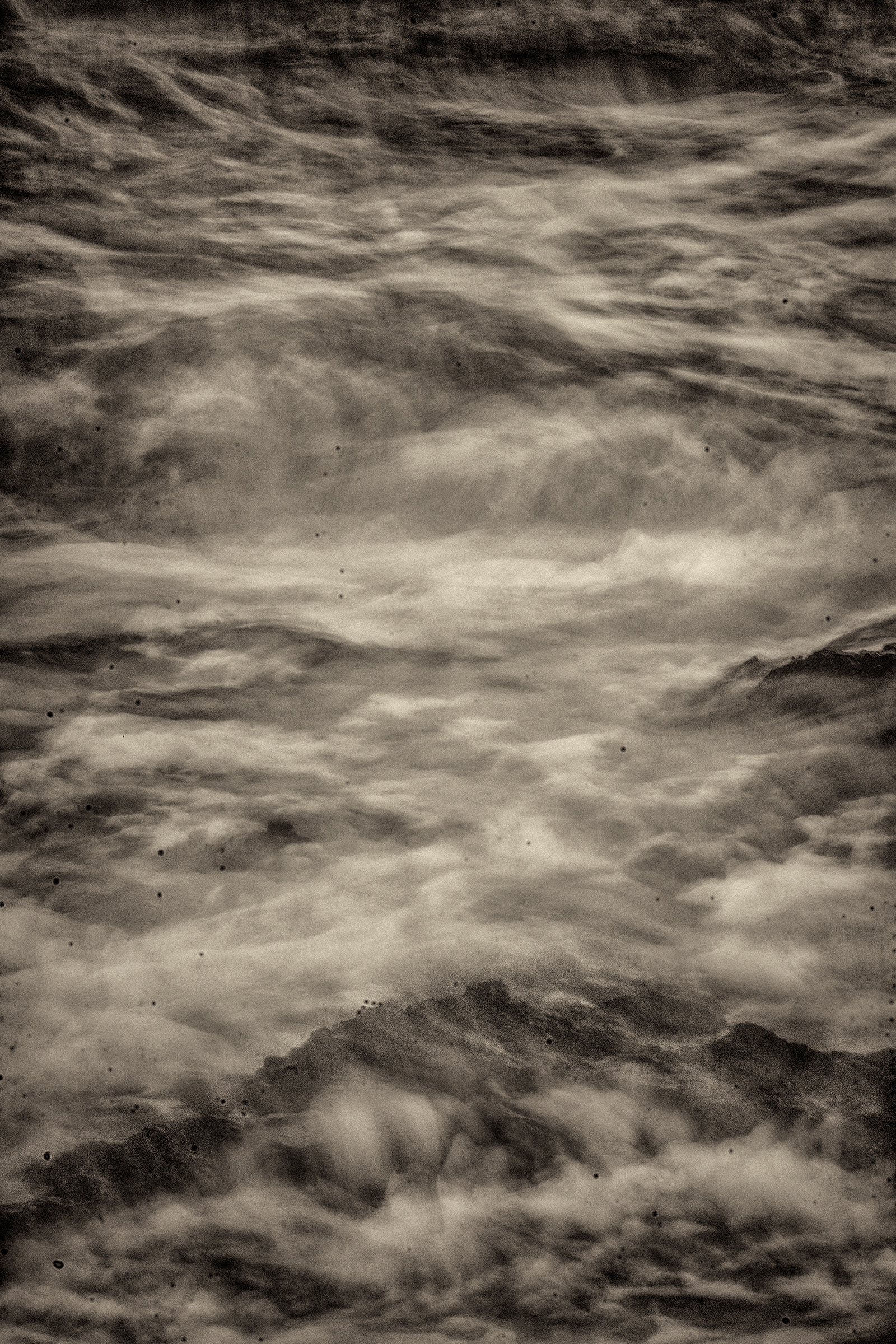
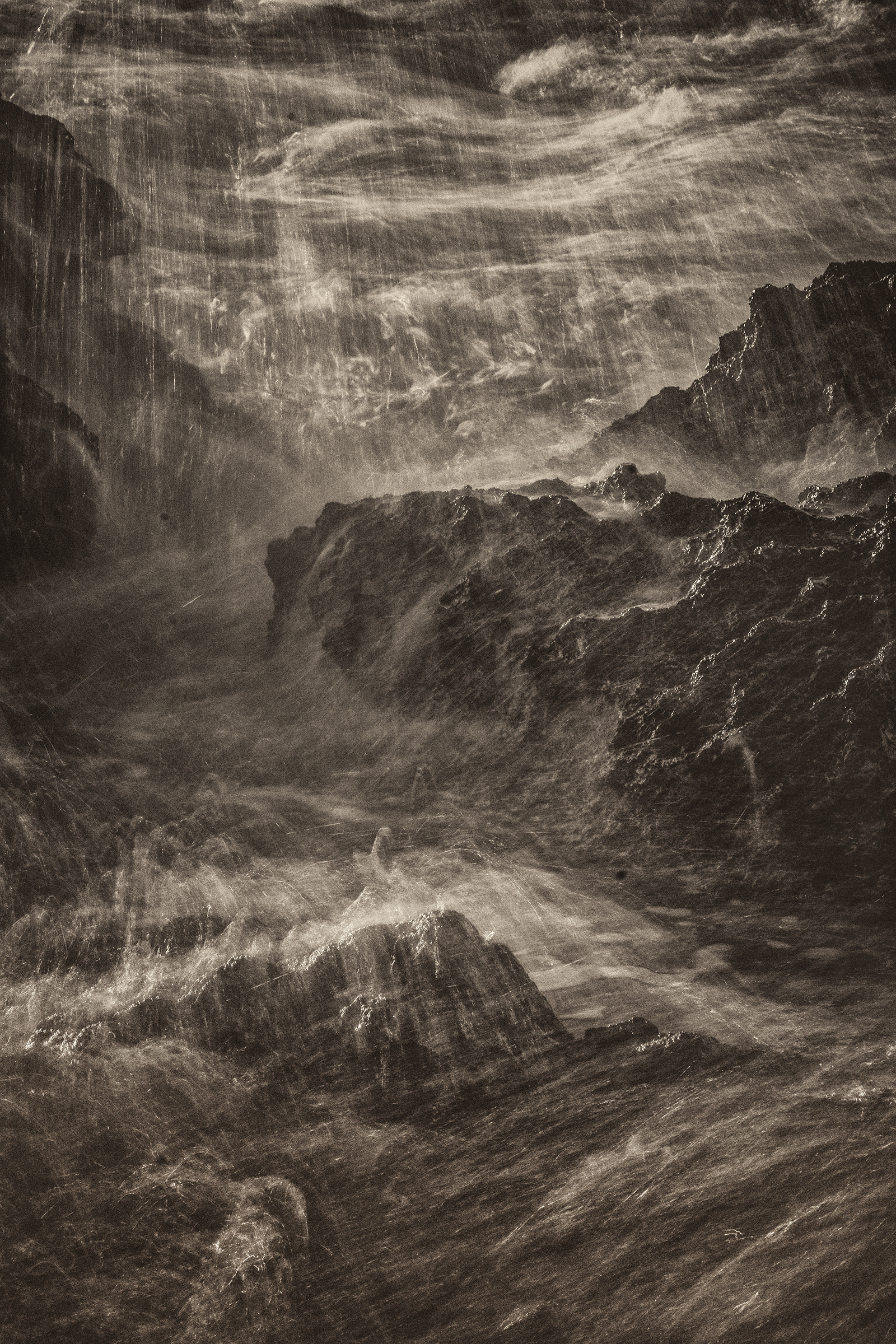
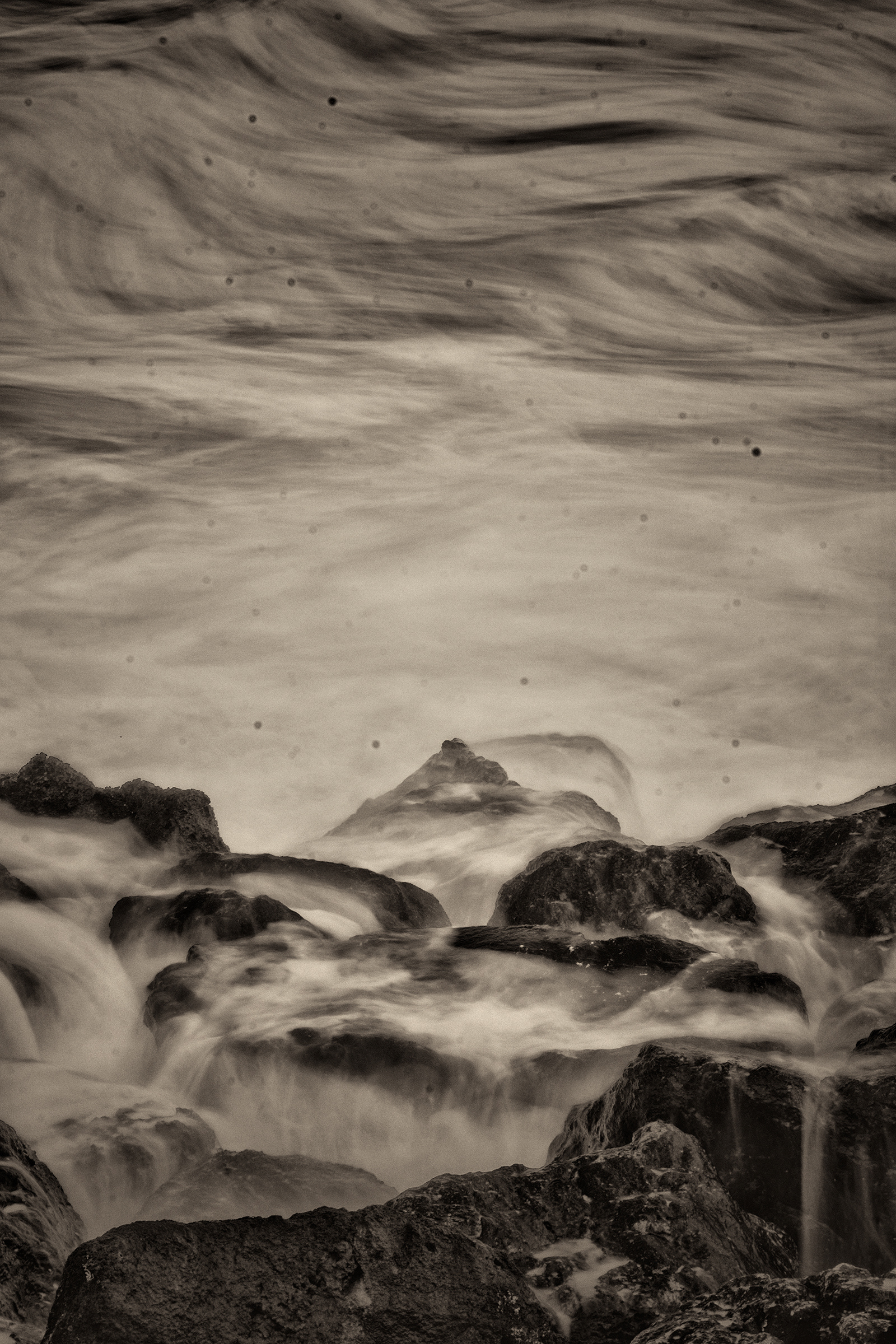
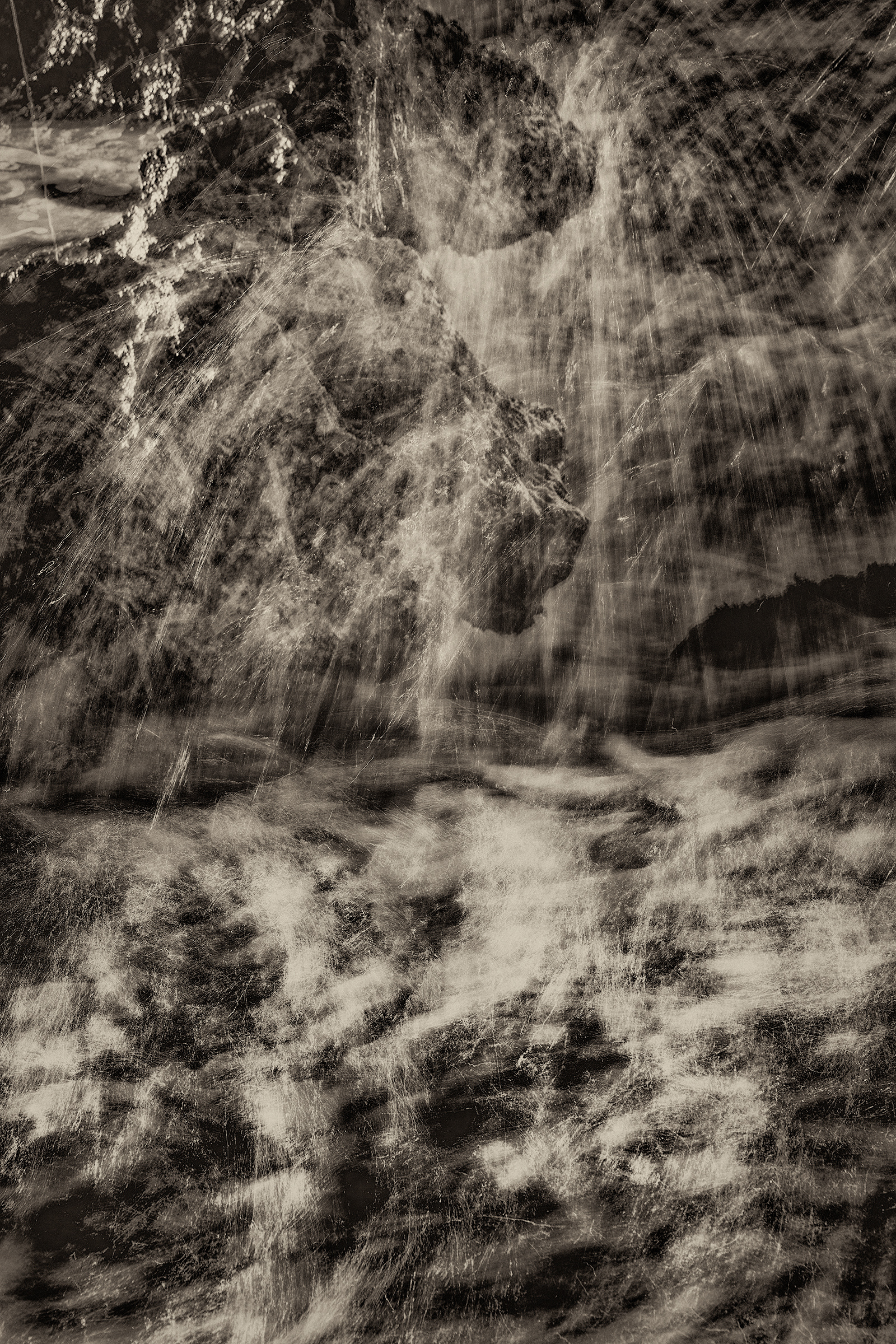
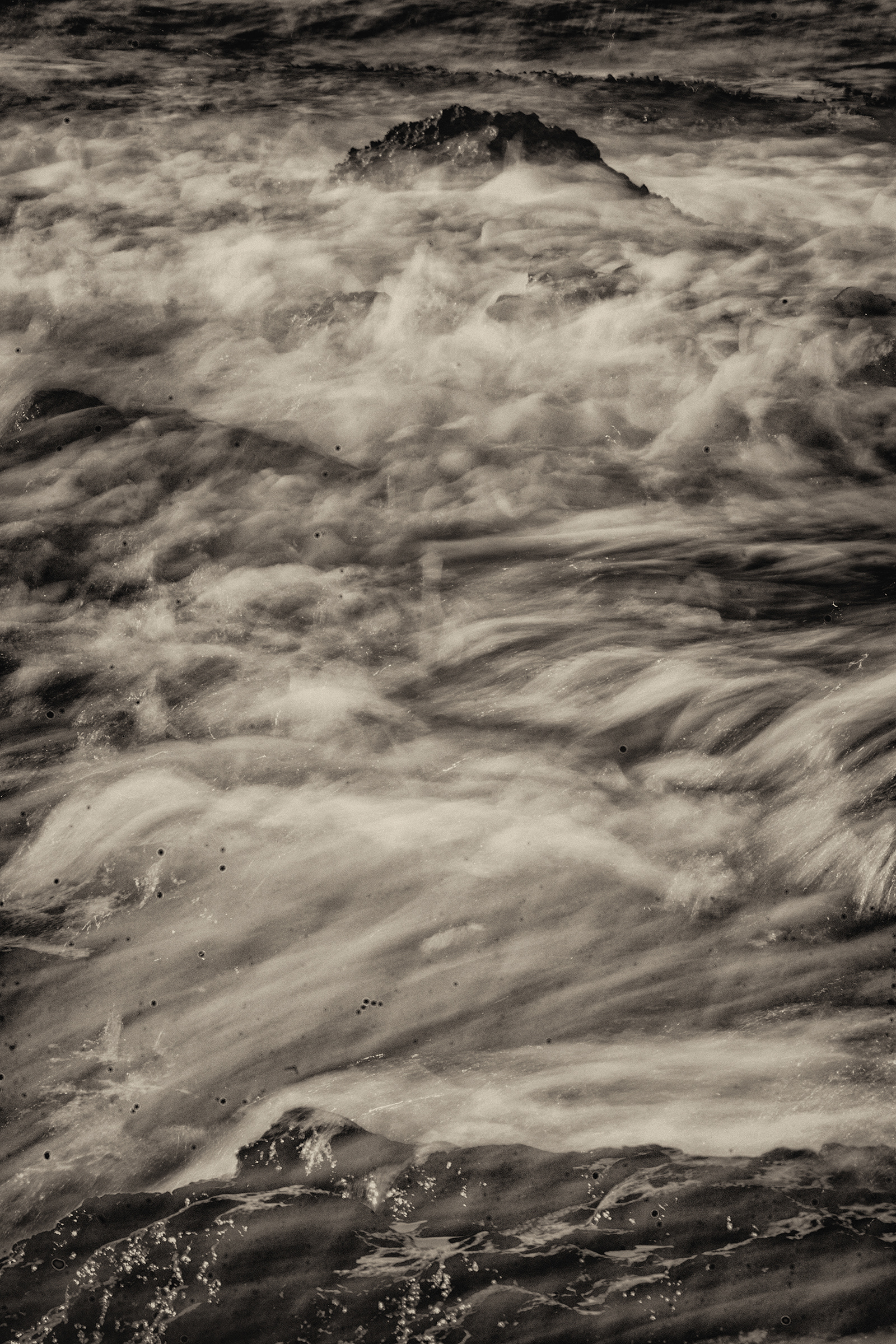
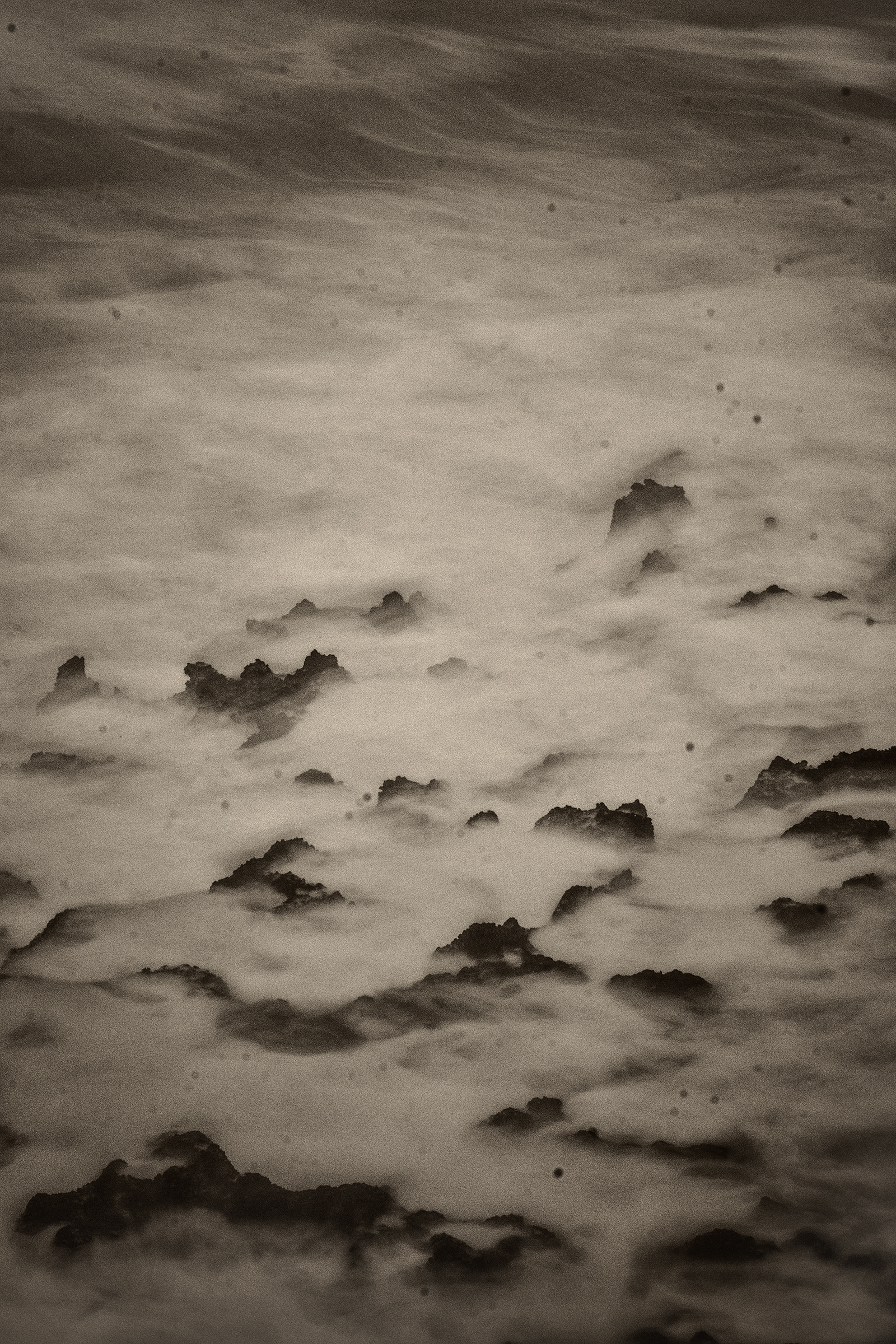
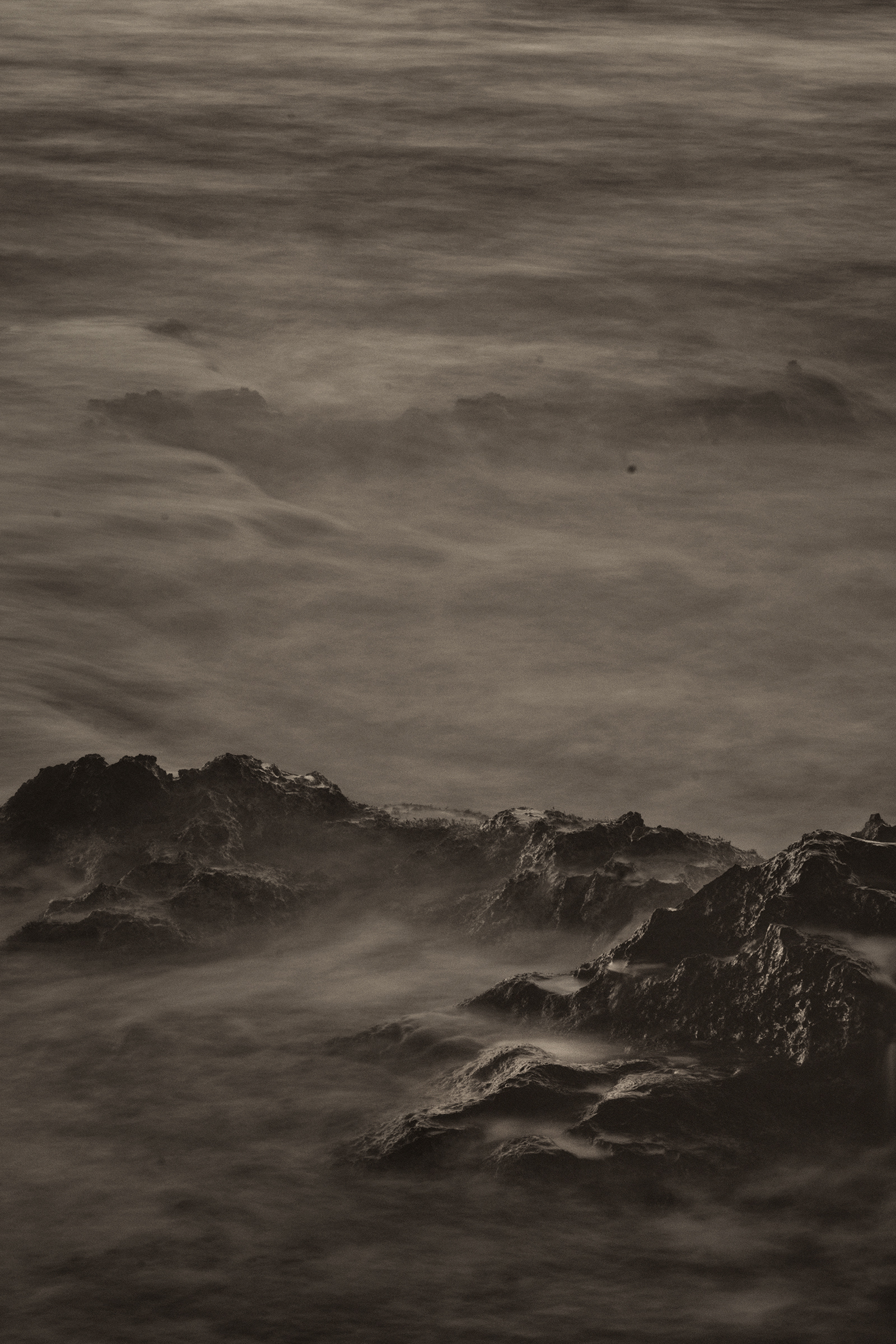
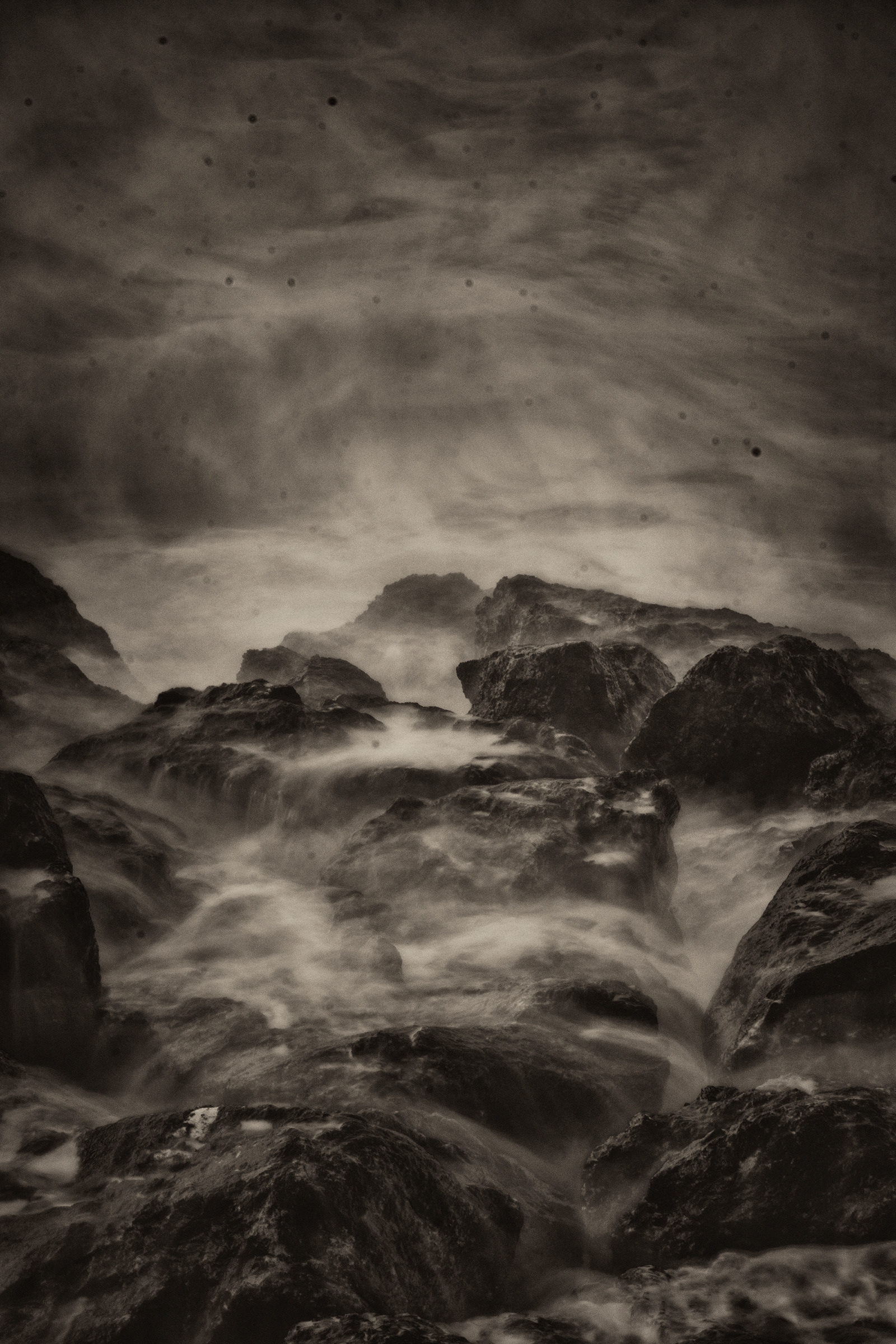
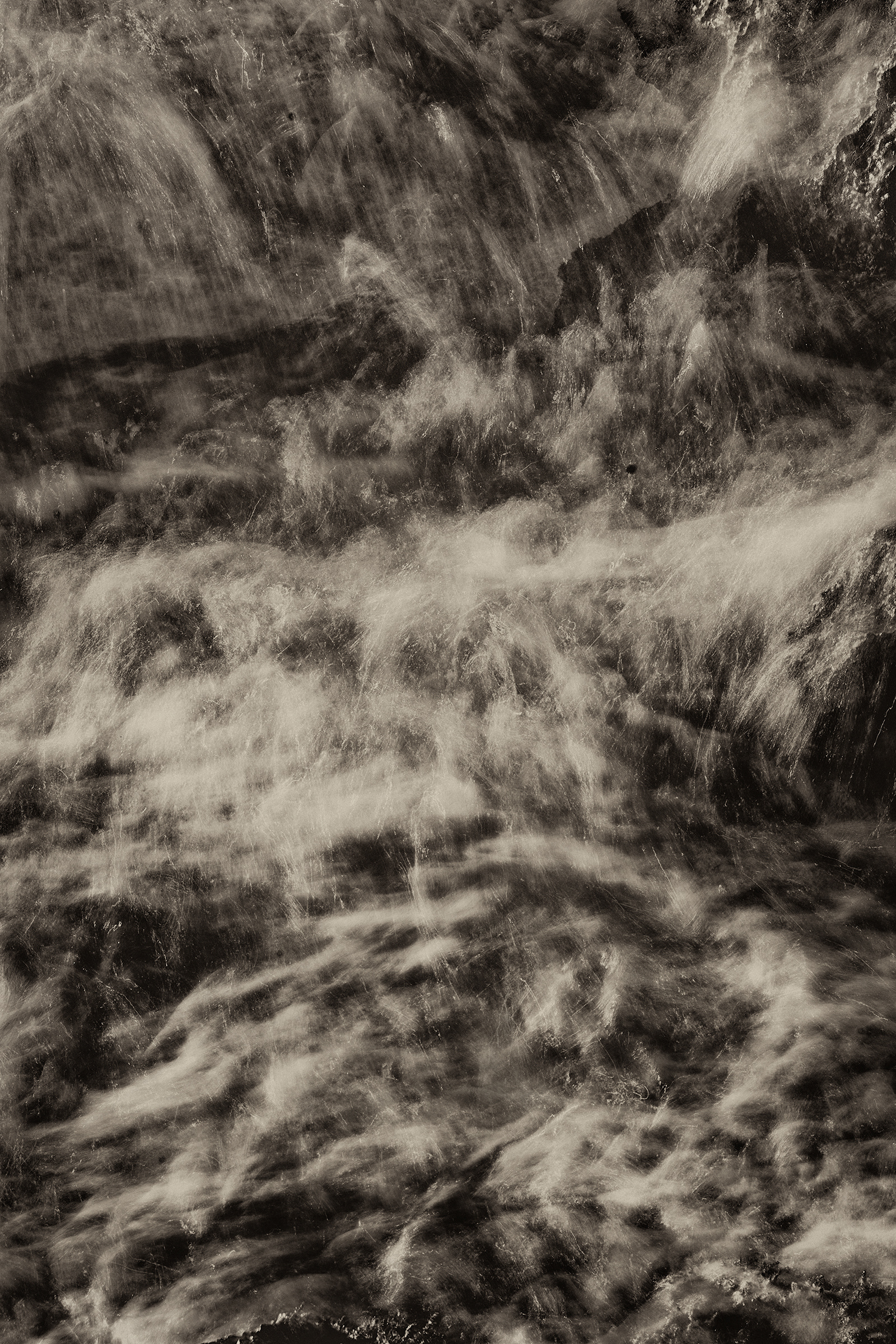
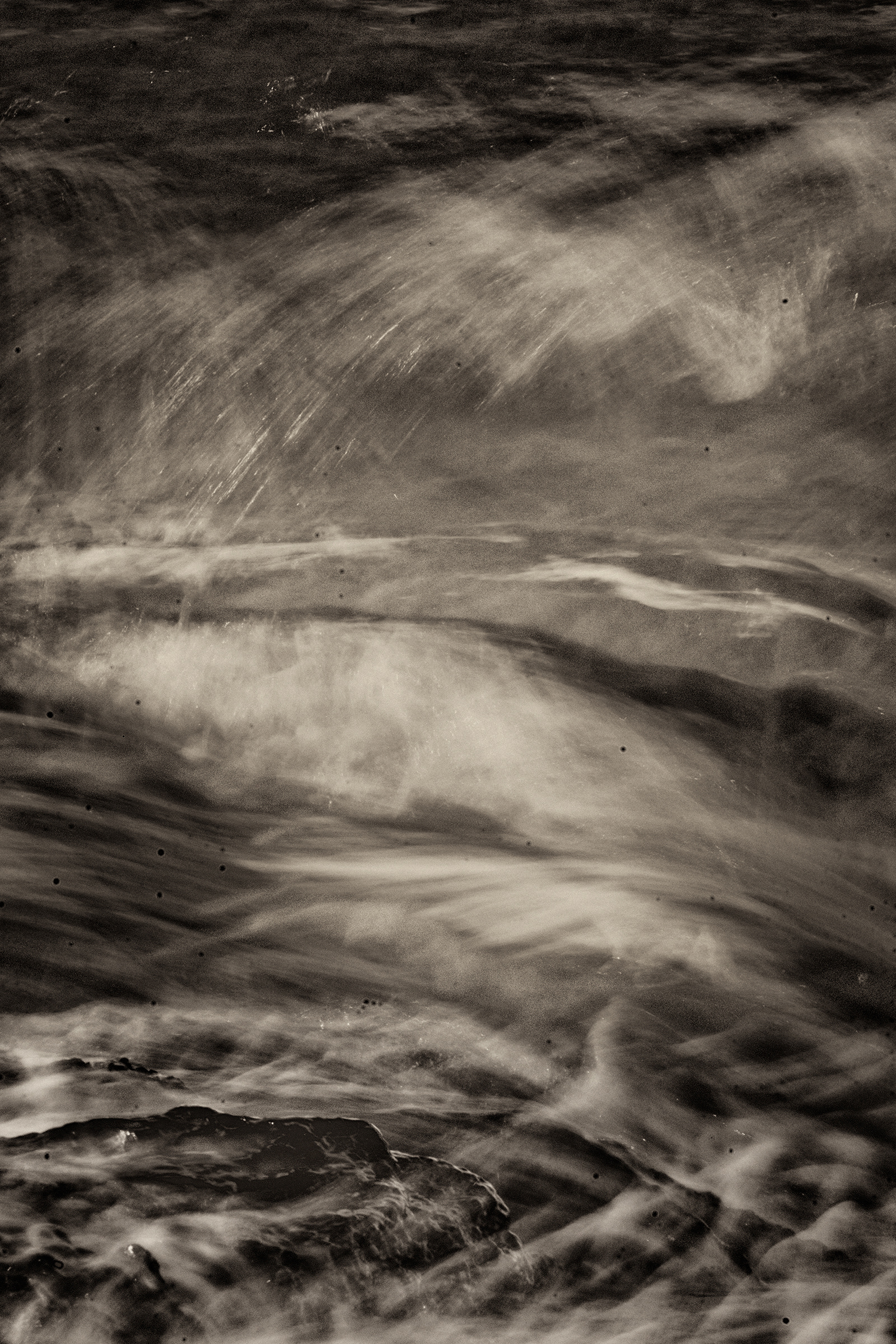
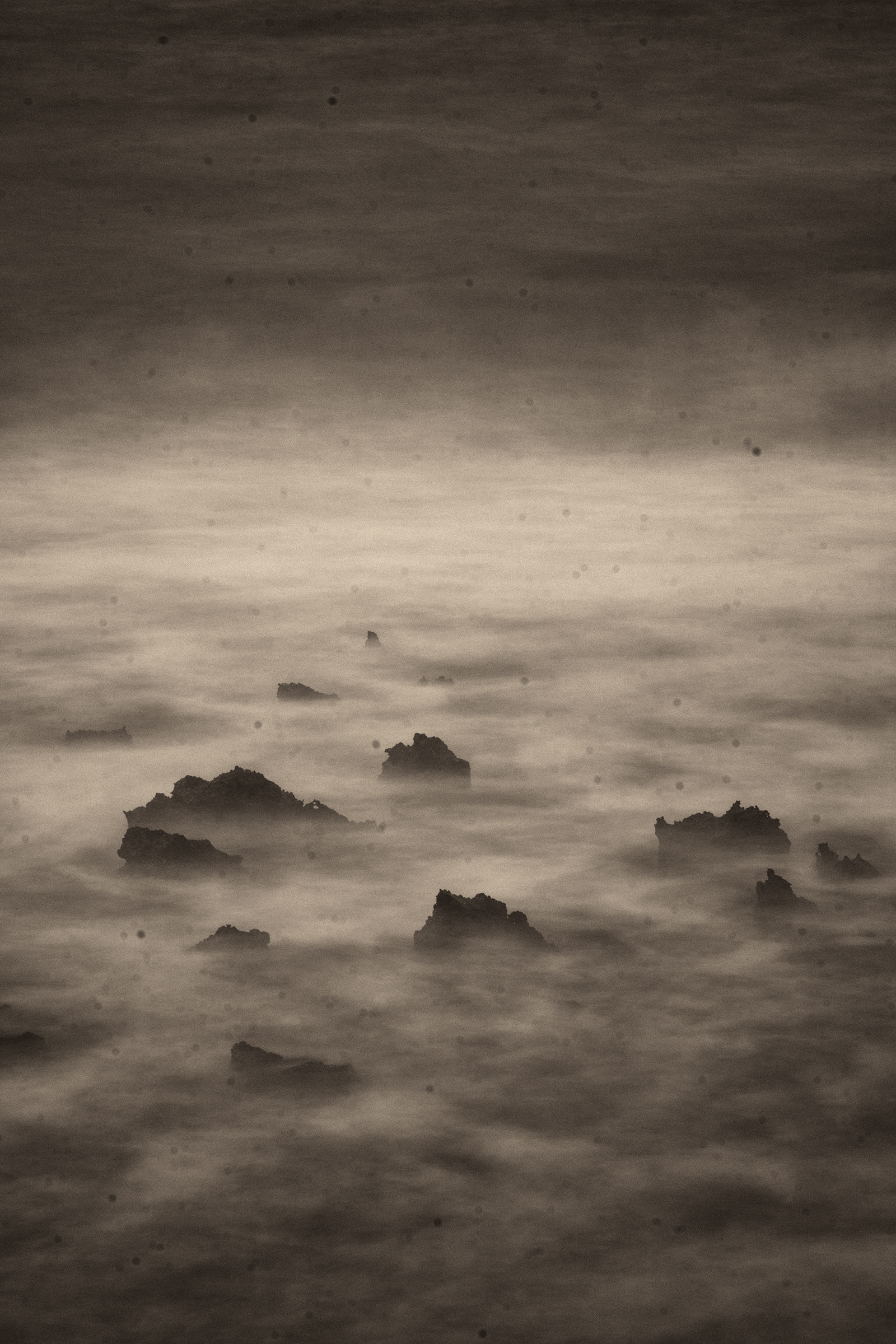
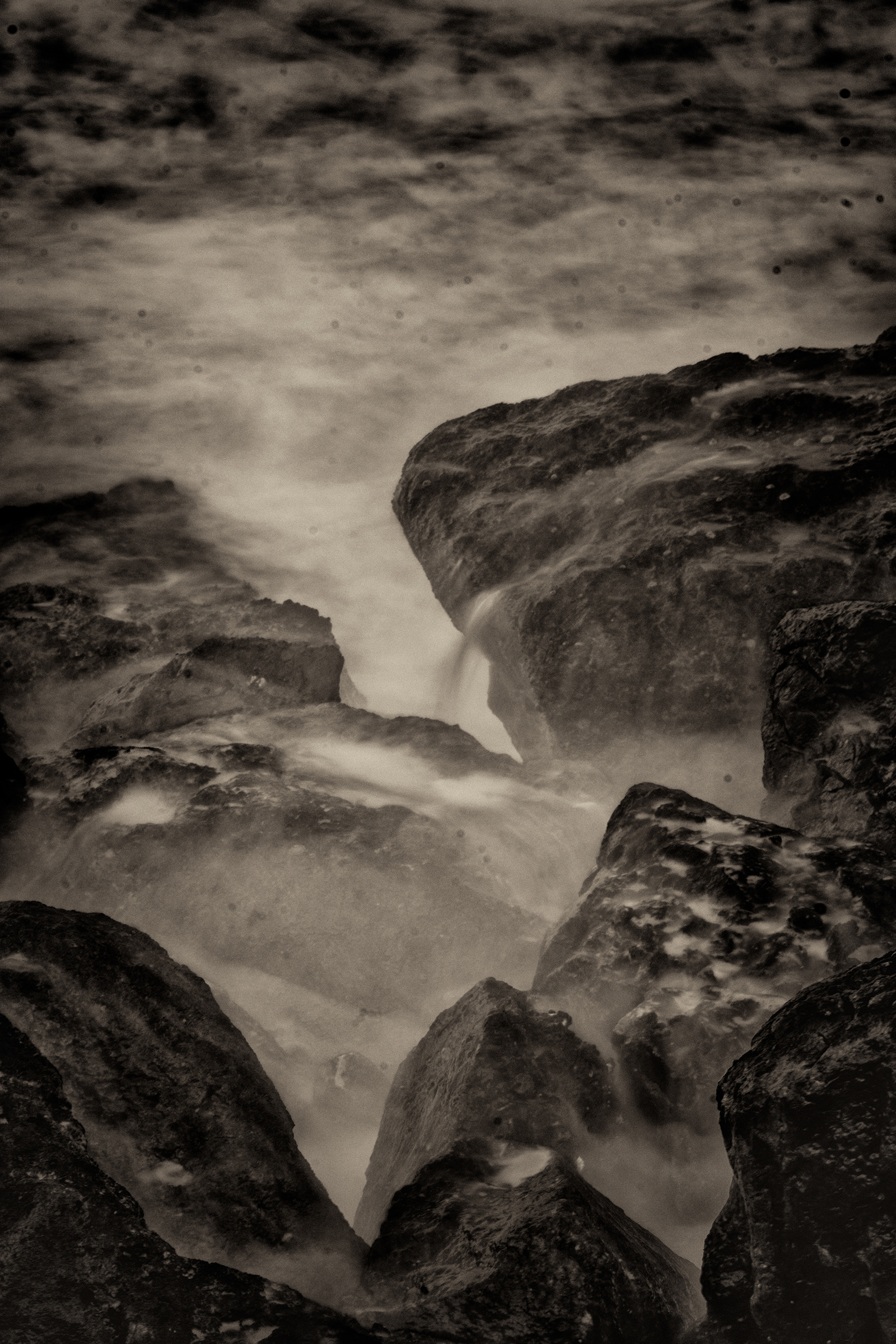
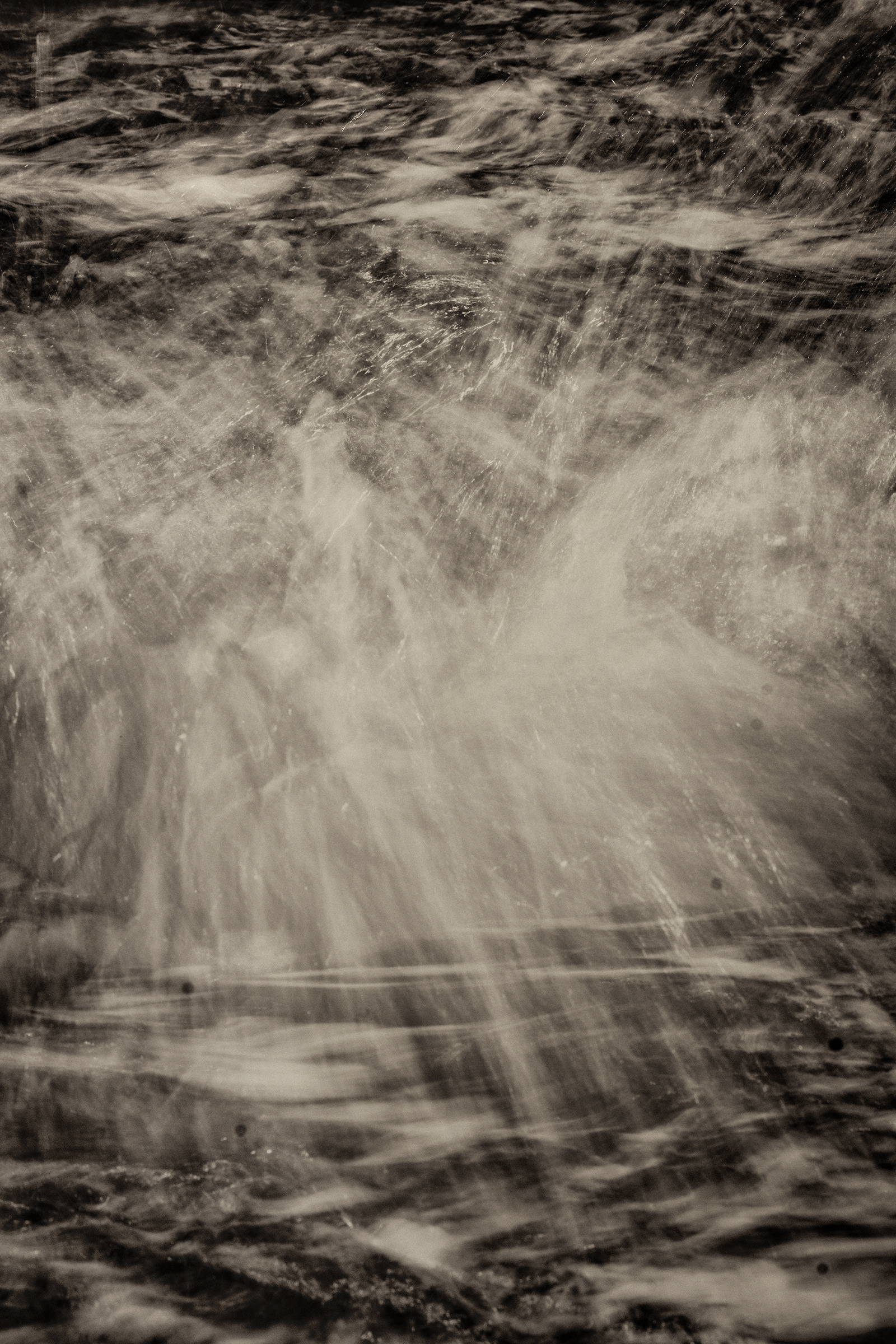
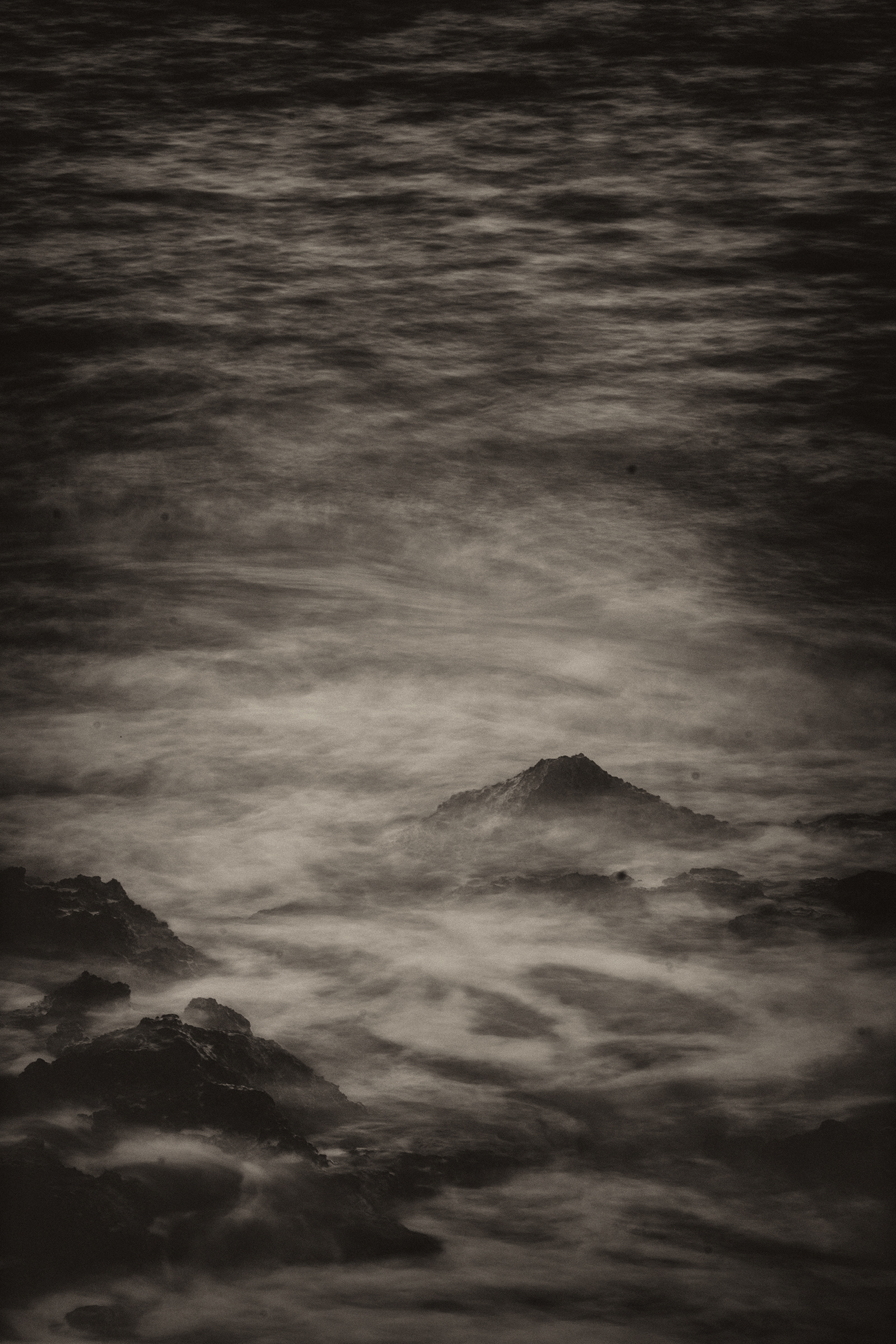
these photographs came to me in the second half of 2022, while i was living in chania, crete. each day, i walked the narrow seawall between the harbor and the mediterranean, drawn to what i found there—its specific convergences of wind, water, light, and stone. i cannot say what i was seeking. i suspect the persistent sense of wonder that found me had something to do with losing—for awhile—my own searchful mind.
when i began to photograph, my purposes were experimental: to receive the place on its own terms as much as possible. this meant approaching it less as an object of picture making than an event acting through photography in ways i could not visualize in advance. (we may want from photography a tool for capturing appearances, but photography itself teaches something else, namely that the visible is the medium of the invisible.) to speak of place as event is admittedly awkward, but how else to call together a geophysical actuality as it is also a geopsychic one—the outer world as it indwells the psyche, touching a feeling mind to deeper sentience?
the experiment proceeded. pace by pace, the elements stepped forward as artistic collaborators, as if agencies acting from beyond—precisely beyond—the limits of what i understood. when the muse appeared, she stepped forward as, to put it as simply as i can, the receiver of my receivings. she was gracious, frank, inquisitive, ferociously honest, disarmingly tender hearted. how can i say what she was? she agreed—perhaps all muses do this—to be my ownmost you. i suspect that she also became you to the place itself, such are her gifts.
the muse opened her arms precisely to the kinds of simple and difficult questions in me that are all but inadmissible with others. why is it only after poetry appears, i asked her, that the attributes of time appear, and why when poetry remains does time then vanish? is it true or only my suspicion that mind is membrane, an organ of permeation between what changes and what does not, the spheres still turning and those that have turned completely? how did tonated silence manage to attach to our animal instincts in the first place, and what terror would appear in their decoupling? i asked her whether the path between beauty and sublimity—walkable as any wall between harbor and sea—is better called wisdom, prophecy, or memory. i asked her whether communion with nature obliterates human solitude, or depends on it. how to know the difference, i asked her, between bad conceptions of god as unitary self-free consciousness, and good conceptions of nature as just such a consciousness? she had deep insight into all of these things, and much more.
her answers were generally direct. do not hold what you behold, she told me, rather make a habit of sending your visions back into sensual circulation. self-emptying was, for her, a healing practice. i could see this was especially so with regard to emptiness in its abyssal form, and all the reasons for despair. she reminded me frequently that one sensorium, well named, names others in turn. “loosening the lost,” she said, will reveal the correspondences.
bit by bit, the elements elaborated. earth disclosed its congruity with stillness, with essence, with order. air confided its nearness to motion, essencelessness, and chaos. fire revealed its identity with luminance, also with sentience and comprehension. water showed its affinity for darkness, becoming, and incomprehension. as the the elements touched one another to co-relation—to life—i noticed that the photographs distinguished them less and less well. water kept becoming fire, and stillness moved. the outer place and the inner place somehow co-mingled oneness in presence with manyness in form. the muse said to me: the makom in its realness is always in the midst of something, and you will travel that midst much further than you expect. and she said: the photograph that counts is the one that unfinishes its own image.
later, as i was making this book, i grew disillusioned. i asked her why insight should vanish so willingly after emanating so concretely. i asked her why meaning in its signal waves should linger less the stronger their vibration. i asked her why the through-line of the seawall should come to trace the persistence of a malady i could only name as holy. the sensorium’s natural home, she answered, is the verge of human sense, not closer. it is the tipping point from which the elements drift and disappear and return.
with gratitude, this book is for her.
jason francisco, 2024
Jason Francisco / Handmade artist's book of "The Elements," January, 2024